
After Emergency Repairs By FG, Fashola Approves Reopening Of Eko, Marine Bridges On M...
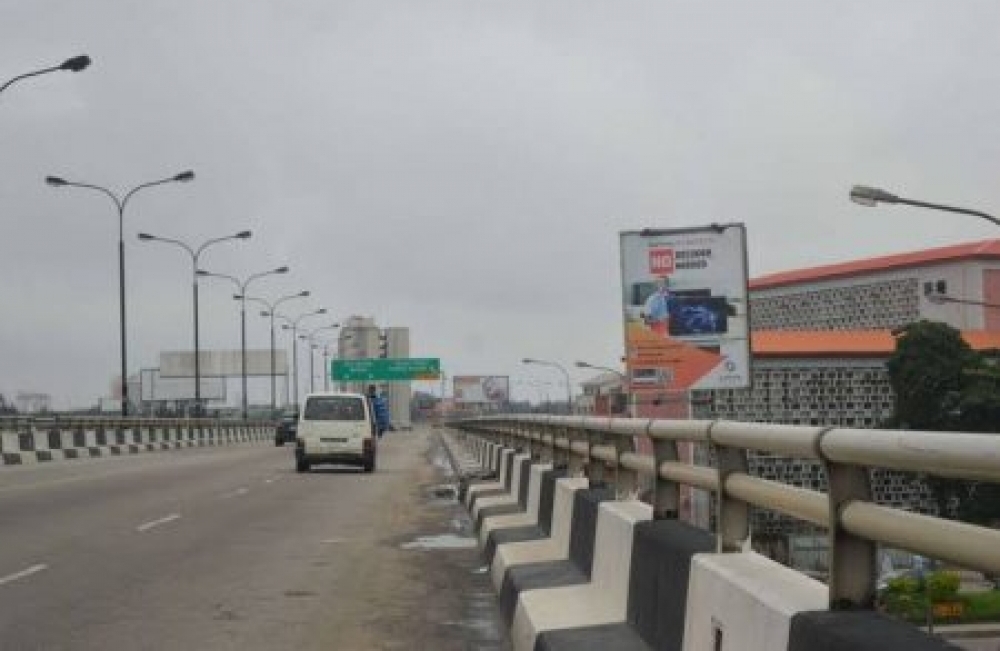
After Emergency Repairs By FG, Fashola Approves Reopening Of Eko, Marine Bridges On Monday
* Minister thanks Lagosians for their patience, understanding, cooperation
* First Phase completed while work commences immediately on the Second Phase
After concluding urgently needed repair works on Eko and Marine Bridges in Lagos, the Minister of Works and Housing, Mr. Babatunde Fashola, SAN, has directed that both bridges be reopened to traffic on Monday, October 19, 2020.
The approval for the reopening of the completed First Phase of the repairs on the Bridges by midnight on Sunday 18th of October, which was given by the Minister on Friday was sequel to the report by the Contractor handling the projects, Messrs. Buildwell Plant & Equipment Industries Limited that the repair works on the First Phase had been completed 100 percent.
In his directives for the reopening of the Bridges, Fashola thanked Lagosians for their patience, understanding and cooperation while sections of the Bridges were closed also directed that members of the public should be informed of any restrictions to traffic while work is ongoing on the Second Phase of the project.
The Minister added that while the completed section of the Eko Bridge (Lagos Island Bound) should be reopened to traffic, work should commence immediately on the Alaka Bound side of the project.
Explaining further on the next phase of repair works on the Bridges, the Director Highways (Bridges & Designs) in the Ministry, Engr. Emmanuel Adeoye, said work was taking off without the need for either partial or complete closure of the Bridges, adding, however , that the public would be informed adequately should such a step become necessary.
The 1,350 metre Eko Bridge, built in phases between 1965 and 1975, links the Lagos Island to the Mainland. It was closed to traffic in March this year in order to replace faulty joints and bearings. But, as a result of COVID-19 lockdown, actual repair works commenced in the first week of June.
Work commenced in May on the first of the three phases in which repair works on the Marine Bridge was divided. The repairs on the Bridge, which is part of a network of complex bridges with several loops taking traffic in and out of the Apapa area of Lagos, included jacketing and skin repairs of the piers, lifting the bridge section deck in order to change the electrometric bearing, milling and placing a new wearing course of asphalt among others.
The repair works on the Eko and Marine Bridges is part of the ongoing Federal Government’s Bridge Maintenance Programme which involves the repairs and rehabilitation of over 37 bridges nationwide with a substantial number already completed while others are at different stages of completion.
Gombe – Yola Road Receiving Attention - FG...
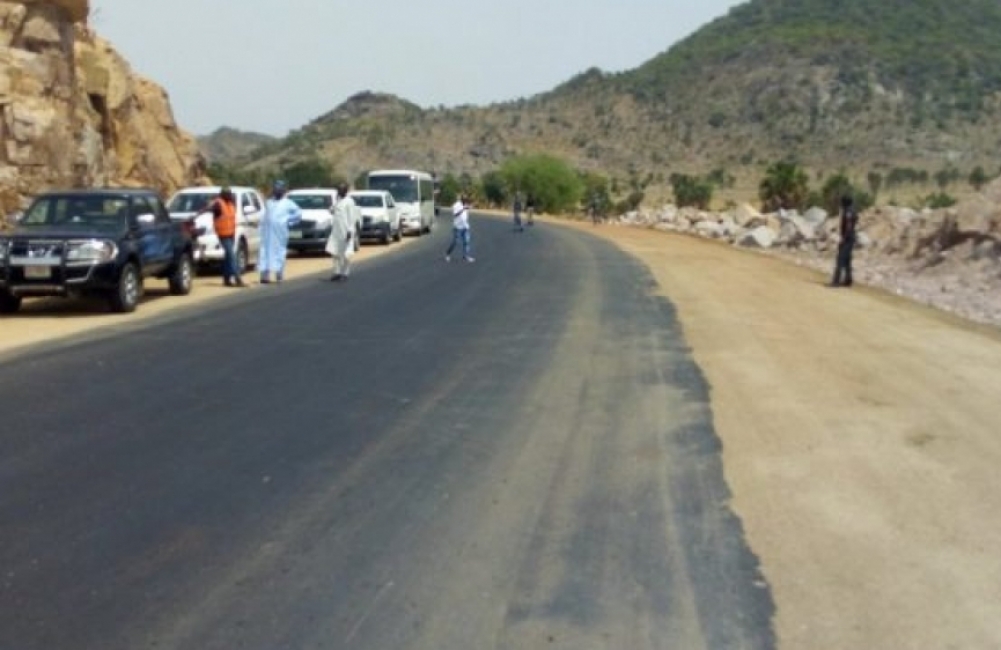
Gombe – Yola Road Receiving Attention - FG
The attention of the Honourable Minister of State, Federal Ministry of Works and Housing Engr. Abubakar D Aliyu, FNSE has been drawn to the publication on the social media on the failed portion of Gombe-Yola road.
The Federal Ministry of Works and Housing (FMW&H) is aware of the condition of the road and committed to repairs of the damaged portion.
The portion had been adequately assessed, redesigned and procurement process completed as an additional work to the subsisting contract for the rehabilitation of the road and FEC has approved.
The bad portion which is about 11km sits on clay soil called black cotton soil which cannot support traffic. The removal and replacement of this black cotton soil was not part of the original contract, but approval has been given by FEC to augment the contract to include the removal of the black cotton soil and replacement with stones and laterite.
However, the contractor cannot embark on the removal of this clay until after the raining season. In the interim, the contractor is carrying out palliative works to keep the road motorable. The contractor is on site working even now.
The contract awarded involves massive excavation of the soil and replacement with stones to make the road last long. We therefore appeal for patience and understanding of the citizens and other road users. Full re construction of the bad section on the road will commence as soon as the rains subsides.
It needs no restating that President Muhammadu Buhari is committed to alleviating the pains of Nigerians wherever they reside.
A Better Urban Future Is Within Our Reach-Fashola...
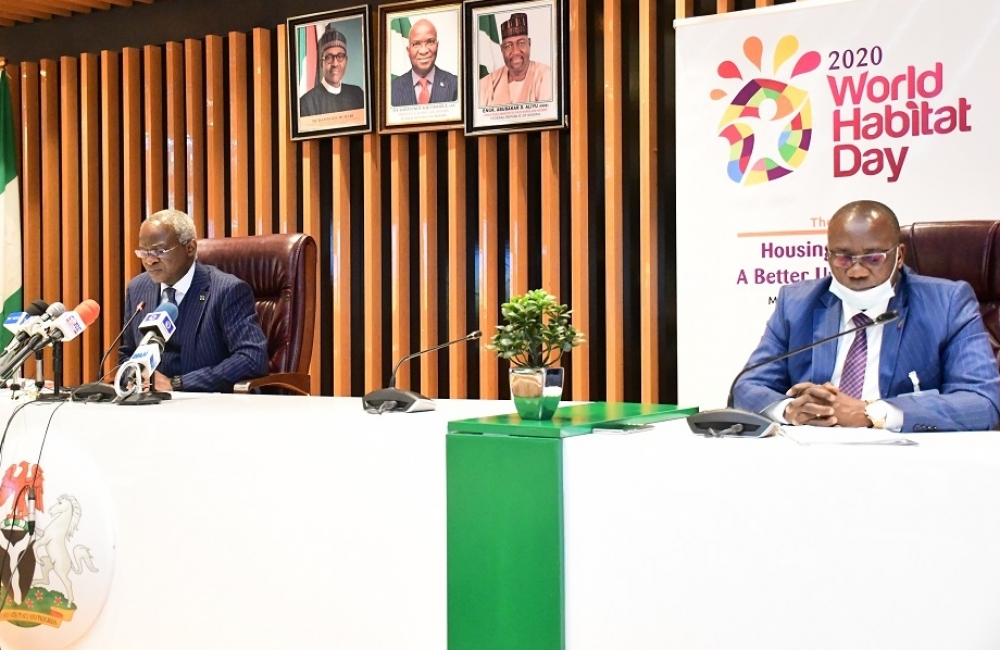
A Better Urban Future Is Within Our Reach-Fashola
The Honourable Minister of Works and Housing, Babatunde Raji Fashola, SAN has assured Nigerians of Federal Government’s commitment to deliver a better urban future despite the prevailing challenges within the housing sector.
He made the statement at the virtual commemoration of the 2020 World Habitat Day (WHD) celebration held on Monday at the Federal Capital Territory, Abuja with the theme:” Housing for all: A better Urban Future.”
Mr. Fashola acknowledged the adverse effect the Coronavirus pandemic had made on an already difficult situation, but he reeled out activities set out to improve access to affordable housing, mobility, sanitation, jobs and socio-economic opportunities despite the challenges posed by the pandemic.
He said the approach for implementing this was multifaceted “from house refurbishment loans to mortgages with reduced service conditions, direct housing construction, improved speed of titling and Issuance of documents with plans underway to unlock unused properties as well as accelerate advocacy for reduced rent demands”.
He also emphasized that a people-centred approach was key to addressing housing issues which would be the basis for character shape and socio-economic vibrancy of cities, as it is in all the urban centres around the world.
The Honourable Minister said the Federal Government was committed to delivering “Housing that is obtainable, healthy, inclusive and adequate, safe and affordable as this was the key to sustainable and transformation of societies and communities.”
He further disclosed that to relieve citizens from economic challenges, President Muhammadu Buhari has initiated the development of an Economic Sustainability Plan of 2.3 Trillion naira to improve payroll support, Micro Small and Medium Enterprises (MSMEs) Collateral Fund, Loan re-strengthening for businesses, industries support and agricultural support to mention but a few.
He gave assurances of his obligation to the realisation of the Nigerian Economic Sustainability Plan and hoped to strengthen partnership with the private sector and other government agencies at all levels to effectively deliver on the mandate.
Speaking earlier the Permanent Secretary, Federal Ministry of Works and Housing, Mr. Ernest Umakhihe in his welcome address said the World Habitat Day was established in 1985 by the United Nations General Assembly through Resolution 40/202 of 17th December, 1985 and was first celebrated in 1986.
He said first Monday of every October was recognised as World Habitat Day, a day set aside to focus on the state of human settlements and the basic rights for all for adequate shelter and to remind all that we are responsible for the habitat of the present and future generations.
Mr. Umakhihe said the celebration would wrap up with the observance of the World Cities Day on 31st of October 2020 with the Focal Theme: Better Cities, Better Life and a Sub-Theme: Valuing Our Communities and Cities. The central celebration was going on in Surabaya, Indonesia, he added.
He was certain that during the dialogue session, the well selected resource persons would deal extensively on affordable housing delivery and urban development as economic revival strategies in the COVID19 era in Nigeria, initiate innovative and transformative actions to seek pragmatic solutions to overcome them. He was optimistic that we could build a better life and a better future for all Nigerians.
The high points were the different presentations on:Towards A Sustainable Housing Delivery:Optimizing The Opportunities; Providing Affordable Housing In Cities; The Role Of Partnerships, Advocacy And Community Mobilization; And Financing Options For Affordable Housing Delivery In Africaamong others.
Our Target Is To Achieve President’s Next Level Agenda – Umakhihe...
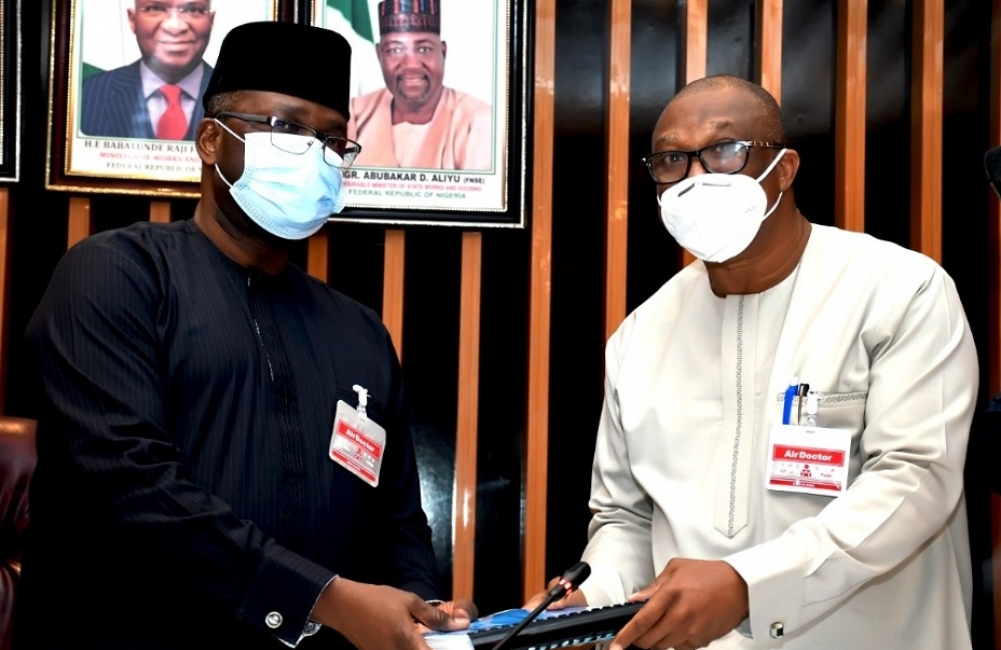
Our Target is to Achieve President’s Next Level Agenda – Umakhihe
The new Permanent Secretary of the Federal Ministry of Works and Housing, Ernest Afolabi Umakhihe has promised to actualize President Muhammadu Buhari’s Next Level Agenda. The Permanent Secretary made the promise during the formal handing and taking over ceremony of the affairs of the Ministry between him and the Director Overseeing the Office of the Permanent Secretary, Engr.Yemi Oguntominiyi.
The Permanent Secretary said “Mine is to make sure I am able to mobilize all of us to work in achieving the mandate of Mr. President’s Next Level Agenda and of course our Honourable Minister and I promise you, we will all work as a team.”
Umakhihe who noted the enormity of work in the Ministry assured all that he was poised to take up the responsibility. He said “I want to thank you for this reception to the Ministry of Works and Housing where I am told that there is a lot of work.”
“Like the Minister told me yesterday, when he said I had joined a moving train, I told him no matter how fast that train is, I will make sure I am able to log onto it and then within a short time I will be fully on board and even join the Driver.”
Umakhihe called for openness and transparency in official dealings. “ I am open and transparent in all my work and I do hope you will extend same to me in the course of our duties,” he said.
Earlier, the Director who was Overseeing the Permanent Secretary’s Office, Engineer Yemi Oguntominiyi and who is the Director Highway Construction and Rehabilitation of the Ministry, expressed happiness and confidence that the new Permanent Secretary would move the Ministry to greater heights due to his robust experience having served in similar capacity in other Federal Government establishments .
He said,“Permit me to first of all welcome our new Permanent Secretary who has served in no less important ministries, with a rich pedigree and requisite experience to man the affairs of this ministry, he is undoubtedly suitable for the new assignment.”
Oguntominiyi who described the staff of the Ministry as competent, diligent and experienced assured the Permanent Secretary of the unalloyed support and loyalty of management and staff of the Ministry. He thanked his colleagues and the entire staff for the spirit of comradeship and cooperation extended to him while overseeing the office of the Permanent Secretary.
Born on the 5th of April, 1964, Umakhihe is a professional accountant of high repute and a core technocrat. He has plied his trade in the public service for years; served in the office of the Accountant General of the Federation, Ministry of Foreign Affairs, Ministry of Defence, Ministry of Finance, Budget and National Planning and Office of the Head of Service of the Federation.
The occasion was attended by Directors and Heads of Units of the Ministry.
FG Approves Local Production Of Bitumen To Boost Job Creation, Conservation Of Foreig...

FG Approves Local Production Of Bitumen To Boost Job Creation, Conservation Of Foreign Exchange
* Directs Ministries of Petroleum Resources, Mines and Steel to develop strategies to enhance, stimulate, and encourage local production
* Fashola calls on entrepreneurs to tap into the production of bitumen locally as he presents Memorandum on Initiative to FEC
* “We see a demand of 500,000 metric tonnes of bitumen locally per annum,” he says
* Local production is also expected to generate no less than 30, 000 jobs for the unemployed in the country
Local and foreign investors with focus on the immense opportunities in the production of Bitumen in the country have received further boost with the Federal Government approval of investment by manufacturers, in the local production of bitumen and other construction materials that are being imported currently for construction of roads across the country.
The Federal Executive Council (FEC), which gave the approvals sequel to a memorandum presented to it by the Minister of Works and Housing, Mr. Babatunde Fashola SAN, also directed the Ministries of Petroleum Resources and Mines and Steel to develop strategies to enhance, stimulate and encourage local production.
The memo, which originated from an initiative of President Muhammadu Buhari, who had made inquiry about the sources of the major components in Road Construction and the possibility of producing them locally, will boost job creation and preserve foreign exchange.
In the Policy Memorandum titled “Approval For The Local Production Of Bitumen And Other Construction Materials In Nigeria”, Fashola, who drew the attention of Council to the fact that bitumen and other major road construction materials were currently being imported, submitted that when produced locally bitumen was expected to be sold at about N125, 000 per metric tonne, which, according to him, is 48. 8 per cent of the cost of the imported one which stands at N285, 000.
Also, according to him, in terms of job creation, producing bitumen locally would, aside reducing the cost of road construction significantly and other benefits earlier mentioned, would also generate no less than 30, 000 jobs for the unemployed in the country.
The Minister informed the Council that the Policy Memo which, was meant to stimulate local production of bitumen as a component of road construction, was an initiative of President Muhammadu Buhari, adding that the President has accordingly challenged the Kaduna Refinery and Petrochemical Company to key into the policy by collaborating with related agencies of government to realize the goal.
Noting that, in buying bitumen at such reduced price, the nation would be saving 56.2 per cent of the cost of importation, the Minister also argued that aside boosting the nation’s construction capacity, the local manufacture would also create thousands of jobs for Nigerians adding that the product, which he described as “a low grade crude oil which is either extracted from the ground or gotten as a by-product of refined crude oil”, has an estimated 38 billion barrels of reserve and extra heavy oils that have remained untapped for years across the country but especially in Ondo, Lagos and Edo States.
Also drawing the attention of Council to the fact that the Kaduna Refinery and Petrochemical Company (KRPC) is the only refinery in the country that has the capacity to produce bitumen deposits, Fashola pointed out that with current installed capacity of 1, 796 metric tonnes per day, well above the present annual local consumption which, according to him, stands at 500, 000 metric tonnes, the company could produce bitumen to satisfy the nation’s requirement and even for export, adding, however, that to achieve that the company has to function at full capacity.
Some of the advantages derivable from the local production of bitumen and other construction materials, the Minister said, also include the diversification of the nation’s economy, improvement in technological growth, establishment of contracts vital for international cooperation in the new expanding technology and socio-economic impact on the areas of operation, among others.
According to him, local production would also help to maintain quality control on production through the Standard Organization of Nigeria (SON) and related Consumer Protection Agencies to ensure that the right quality of bitumen is produced for use by the construction companies while also ensuring further diversification of the nation’s economy.
Assuring investors wishing to invest in the local production of bitumen of government patronage and encouragement, Fashola said local production would also free the foreign exchange currently being expended on the importation of the commodity for other socio-economic needs of the country.
“It will preserve local jobs and also create thousands more that are currently being created in countries from where we import the commodity”, the Minister said adding that the envisaged employment boost, especially in transportation haulage was in line with the President’s projection of lifting 100 million Nigerians from poverty’ and his mandate, “to use what we produce and produce what we need”.
In order to implement the initiative, he recommended that the Ministry of Petroleum Resources, the Nigerian National Petroleum Corporation (NNPC) and the Kaduna Refinery and Petrochemical Company should come up with strategies and requirements that would enable the KRPC to resume the production of bitumen at its plant.
Assuring the Council that President Buhari has directed the reconstitution of the Bitumen Committee for auctioning of the Bitumen Blocks while the Nigerian Geological Survey Agency (NGSA).is also engaged in exploration of more blocks, the Minister informed Council with delight that upon reviewing the Memorandum, the Minister of Mines and Steel Development had already given his “No Objection” to the position of the Ministry of Works and Housing on the need for local production of bitumen to reduce cost of road construction.
Aside bitumen, Fashola also sought the improved local production of other essential road construction materials such as cement, crushed rock and steel explaining that while cement constitutes the major component of reinforced concrete utilized in the construction of bridges, drains, culverts and rigid pavement, crushed rock is used as the base course to give road pavement the desired load bearing strength while steel is utilized as reinforcements in the construction of drains, culverts, bridges and other hydraulic structures on roads.
In inviting the Council to approve the Memorandum, the Minister noted that there was need to encourage local production of essential construction materials in the country to reduce the cost of road construction, create employment and stimulate growth adding that the spiral increase in the cost of construction materials over the years has resulted in the rise of road construction cost and led to repeated requests for augmentation of ongoing contract sums.
He said while efforts were on to revamp the Ajaokuta Steel Complex to achieve full local production, the required quantity of bitumen for construction of roads across the country are being imported because the Kaduna Refinery and Petrochemical Company had stopped the production of bitumen since 2017 adding that road construction utilizes major part of the average 500, 000 metric tonnes of the product made locally when it was still in production.
Stressing the importance of bitumen in road construction, Fashola declared, “Bitumen is used at almost all levels of road construction, from sub grade, sub base, base course and asphaltic course (Binder and Wearing)”, reiterating that the lack of the product contributes significantly to the high cost of road projects in the country.
Speaking to newsmen later on the approvals, Fashola, who also disclosed government’s intention “to give encouragement and support to all those who take up the opportunity of manufacturing bitumen”, said the Kaduna Refinery and Petrochemical Company was expected to also raise its game by participating in the production sub-sector of hydro-carbon industry, adding, “We expect that it will improve the quality of bitumen that is produced and goes into our road construction just as we are now able to control the quality of cement that goes into local construction”.
“We are also promoting the use of more cement, stones, and rocks in road construction”, the Minister said adding that his Ministry was now developing a design manual of rock and stone used in road construction in the country which, according to him, formed the framework of the policy documentations that he presented to Council and which were approved.
“So, we expect the Nigerian entrepreneurial community to now respond to all of the existing government policies for setting up businesses and embracing this policy as part of ways to develop our made-in-Nigeria capacity”, Fashola said.
Fashola Charges Vice Chancellors On The Use Of Data To Aid National Development...
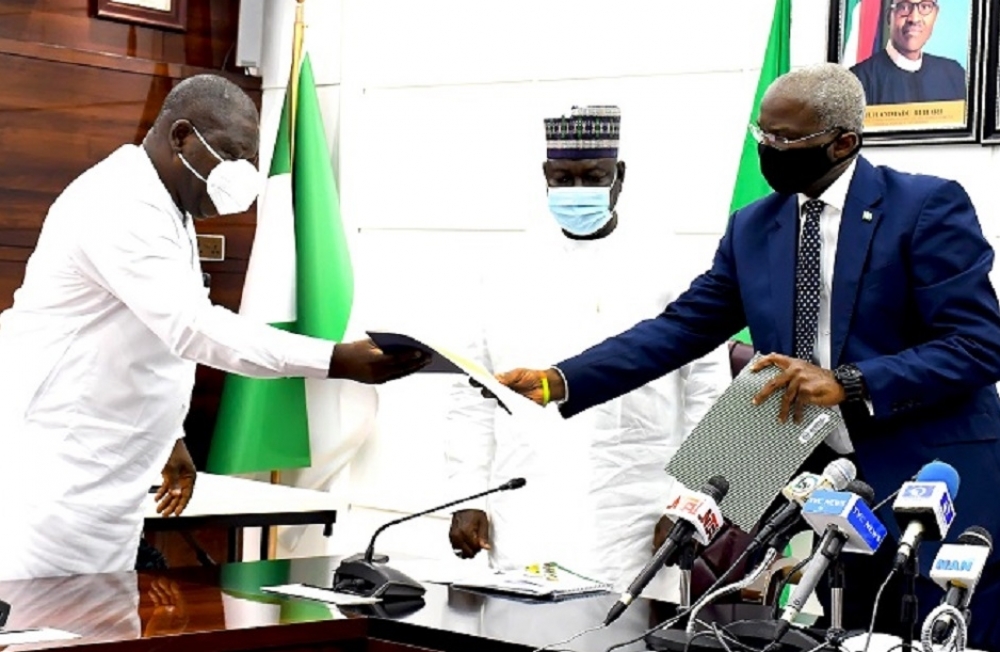
Fashola Charges Vice Chancellors on the Use of Data to Aid National Development
The Honourable Minister of Works and Housing, Mr. Babatunde Fashola SAN has charged the Vice Chancellors in Nigeria Universities to channel the data in their confines to guide government, the business community and the citizenry on national development. Fashola gave the charge while granting audience to the Association of Vice Chancellors of Nigerian Universities, who paid him a courtesy visit today in his office.
The Minister said, “The world is chasing data, collating data, this data is sitting in our Universities, almost every lecturer ask students to write one research paper or the other. We can use this data in a useful form, to inform our government, to inform businessmen, to inform the society”. He added that for instance such information could be used in the analysis of a local government with a view to yielding positive results.
In response to the call for his support by the Vice Chancellors, he said, “In terms of collaborative relationship on infrastructure, you can take my cooperation for granted”. Fashola stated that the Ministry of Works and Housing had intervened in the building of roads in 44 tertiary institutions in the country under this administration but lamented that when people criticize government on the state of roads no University came to inform the public on those interventions.
The Minister who described the University as an investment into the future urged the Vice Chancellors to be discreet in the award of honourary degrees which he described as very important building blocks that should be given to only deserving people and not for those whose achievement is just the occupation of a political office.
He said this would encourage the youth to work harder while charging honourary degree holders to bring their impact to bear in the development of the universities. Fashola also advised them to bring Professors together to write an acceptable version of the Nigerian history that will be taught in schools like it was done in some other climes.
Speaking earlier, Secretary General of the Association and leader of the delegation, Professor Yakubu Aboki Ochefu informed the Minister that the Association which was established in 1962 is a platform for sharing ideas and engaging Nigerians on issues that affect the Nigerian universities. He added that the organization which had the universities of Ibadan, Lagos, Ife, Nsukka and Ahmadu Bello University, Zaria at inception now has 174 universities.
Professor Ochefu who praised the Minister for his commitment to road construction and maintenance, expressed gratitude to him for the intervention of his Ministry in the building of internal road in 44 tertiary institutions across Nigeria. He informed Fashola that they were in the Ministry to seek his cooperation in their plan to produce a compendium on the forthcoming celebration of the 60th anniversary of their association in Nigeria, and his support to tackle the problems facing Nigerian universities.
Professor Ochefu said that the group decided to seek partnership with the Minister to share experience in view of the pivotal role he played in the development ofLagos State university when he was the Governor of Lagos State.
Present an the occasion were the Minister of State for Works and Housing, Engr. Abubakar D. Aliyu, [FNSE], the Director overseeing the office of the Permanent Secretary, Engr. Yemi Oguntominiyi and other Directors of the Ministry.
FG Commences Partial Closure Of Third Mainland Bridge For Repairs And Restoration...
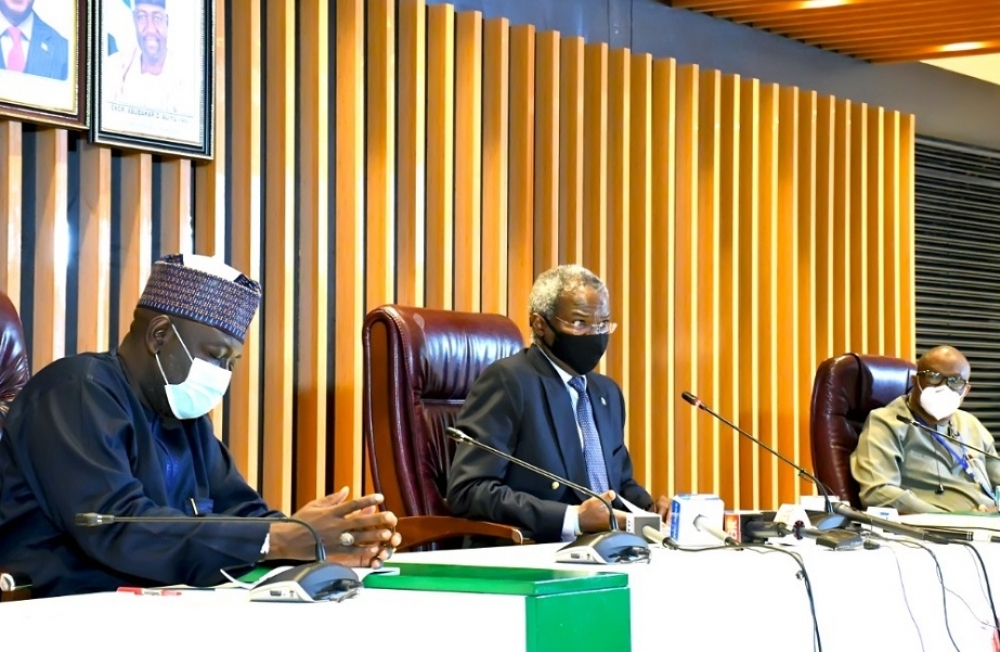
FG Commences Partial Closure of Third Mainland Bridge for Repairs and Restoration
….Lists alternative routes and calls for patience and understating of road users
The Federal Government has announced the partial closure of the Third Mainland Bridge in Lagos, Nigeria, from Friday July 24, 2020 to January 24, 2021 for repairs.
The Federal Minister of Works and Housing, Babatunde Raji Fashola announced this on Tuesday during a Press briefing to the nation on Government’s plans of assuaging the pains the closure would cause the over 132,702 light and vehicles that ply that route on a daily basis.
Fashola during the Press briefing also announced alternatives routes: Costain, Ebute-Metta and Ijora as road users could use during the period of the repair.
He also called for patience and understanding of road users adding that it was well-meaning Nigerians who drew the attention of the government to the bridge through comments and videos, pointing out that the maintenance was a direct response to those calls which was what governance is all about.
Fashola explained: “The Bridge is 11.8km; we are closing 3.5km so it is a partial and not a total closure.” He said that the Third Mainland Bridge was conceived in 1970 as a result of rapid modernisation of Lagos and that the construction work of the bridge spanned over three decades and was done during the oil boom, pointing out that the need for maintenance of the bridge was inherited by the current administration.
According to Fashola, the Federal Government had so far intervened on thirty–seven bridges across the country, maintaining that Lagos has the highest number of bridges. He further said that the work on the Lagos Mainland Bridge is a collaborative effort between the Federal and Lagos State Governments.
He commended the commitment of the present administration under President Muhammadu Buhari in the maintenance of the nation’s infrastructure nationwide.
Acknowledging the pains the closure may cause, Fashola called road users to be patient as the construction works last. “The best will happen if we all show understanding, restraint and patience, because we will have a better and safer bridge in a short while to come,”he said.
In his presentation, the Director of Highways Bridges and Design, Engr. Emmanuel Adeoye stated that the Third Mainland Bridge which is about 11.8 km long links Lagos Island to the Mainland and it is the busiest bridge in Nigeria with a daily average of traffic count of 132,702.
Explaining further, he stated that the bridge provided the most direct route for commercial and industrial traffic leaving Lagos Island to other parts of the country and vice versa, pointing out that, it was necessary to always ensure regular maintenance to keep it in a serviceable state.
“The periodic maintenance of the bridge was carried out in 2008, 2012, 2018 respectively and the present maintenance was a continuation of the process” he said
On his part, the Director of Highways South-West, Engr. Adedamola Kuti said that the bridge would be partially closed for six months and that the partial closure would be in two phases to ensure operational efficiency. He said alternative routes have been provided to ease traffic flow during the maintenance work on the bridge.
Accordingly, he explained that the two phases would be sub-divided into morning and afternoon traffic to minimize disruption of traffic during peak hours which are mainly from the Mainland to the Island in the morning and a return traffic in the evening from the Mainland to Island.
He further disclosed that during the phase one, the Mainland bound carriage way would be partially closed to traffic from Adeniji-Adele up to the Ebute-Meta axis and that of phase two, the partial closure would be from the Ebute-Meta axis of the Island bound carriage way to the Adeniji-Adele axis.
Corps Marshal of the Federal Road Safety Commission, Boboye Oyeyemi, who also spoke during the briefing said that “The partial closure has therefore placed the Corps in a position to provide strategic plan that will ameliorate the envisioned traffic situation the closure is certain to throw up,”
He said the Corps has deployed massive personnel and logistics to guide and administer road traffic within the six months of the closure, adding that the Corps had commenced publicizing alternative routes to the teeming road users.
Fashola Inaugurates Presidential Committee On Zik Mausoleum, Urge Members To Protect ...
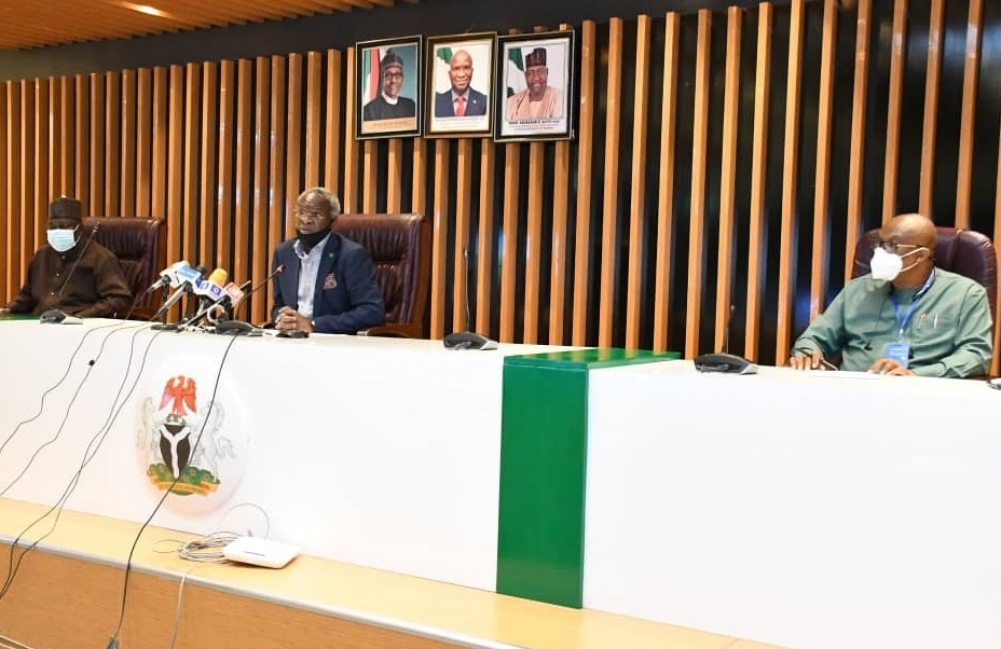
Fashola Inaugurates Presidential Committee on Zik Mausoleum, Urge Members to Protect the Facility
The Honourable Minister for Works and Housing, Mr. Babatunde Raji Fashola SAN has inaugurated the Presidential Committee for the Management and Maintenance of the Zik Mausoleum and Conference Centre, Onitsha.
Speaking during the occasion conducted virtually, Fashola, who noted that the National Public Buildings Maintenance Policy provides a framework and attendant guidelines for the maintenance of Federal Government owned buildings across the country, charged members to ensure proper maintenance and protection of the facility.
He said, “The Committee will take responsibility for the effective maintenance and management of the facility in accordance with the National Public Maintenance Policy and ensure its protection, work at optimal capacity and attain its full life span.”
Mr. Fashola said the purpose of setting up the Committee was borne out of concerns expressed at the inauguration of the building on the need to ensure the Mausoleum served the purpose for which it was built which included honoring Dr. Nnamdi Azikiwe, propagate his ideals and promote tourism.
Speaking on the commitment of the administration to infrastructure development, Mr. Fashola said, “facility management and maintenance is one of the cardinal points of the Buhari led administration which aimed at prolonging the life of the infrastructure, support Small and Medium Scale Enterprises and drive employment”.
Terms of reference for the committee Include: Liaise with the Federal Ministry of Works and Housing to draw up strategies and the framework that will guide the Committee in the effective maintenance of the facility, determine the composition of the professionals to be involved in the management and maintenance of the facility and make recommendations to government on ways of using the facility to project the nation’s rich cultural heritage.
The acting Permanent Secretary of the Federal Ministry of Works and Housing, Engr. Yemi Oguntominiyi expressed his gratitude to the Federal Government for the inauguration of the Committee to safeguard the structure and urged members to work assiduously to achieve result.
Speaking earlier, the Director Federal Public Asset Management Department (FPAN), Federal Ministry of Works and Housing, Arc. Tina Onokwai disclosed that the project was initiated to serve as a national monument and a tourist centre in memory of the late Dr. Nnamdi Azikiwe, first President of the Federal Republic of Nigeria. She added that it consists of a mausoleum and an administrative block and conference building.
The Director further said that the infrastructure which commenced in 1997 and attained completion in October 2018 was commissioned by President Muhammadu Buhari on the 24th of January, 2019. Ach. Onokwai said that the need to ensure its maintenance and optimum use informed the setting up of the Committee.
Members of the Committee are: Mrs. Osuagwu Victoria, representing the National Commission for Museums and Monuments, Mr. Gabby Onyejekwe, representing the government of Anambra State, Ms Sandra Ngozi Azikiwe, representing the Azikiwe family, Mr. Nnaemeka Maduegbuna, representing the Obi of Onitsha, Arc. Tina Onokwai representing the Federal Ministry of Works and Housing and Mrs Aileru Abosede Jumoke, representing the Office of the Secretary to the Government of the Federation.
Members of the committee will choose their Chairman and Secretary at their inaugural meeting.
Celebrating Fashola At 57: The ‘BRF Way...
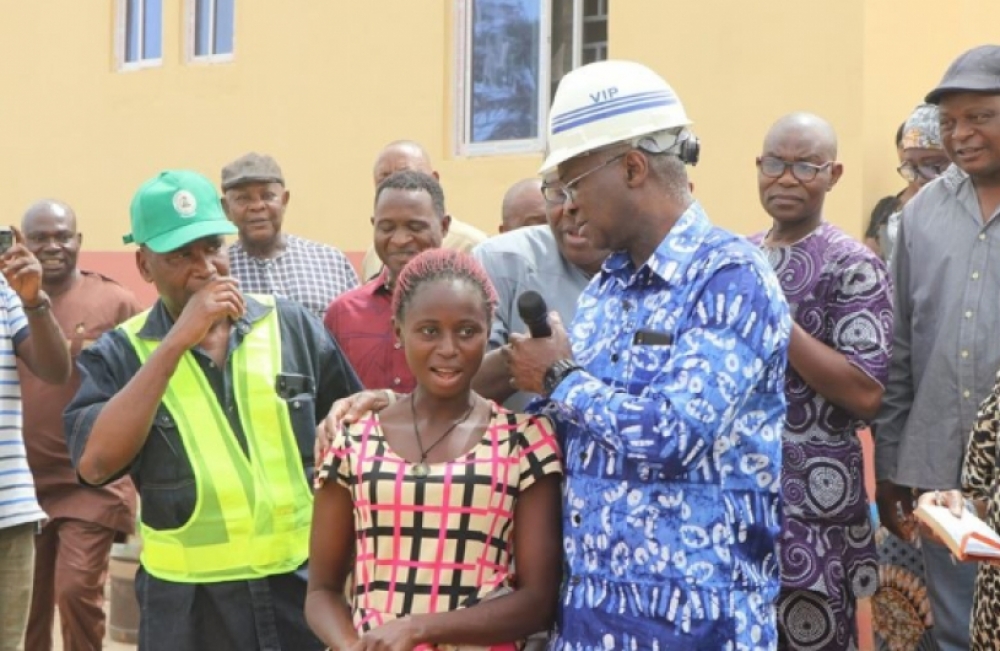
Celebrating Fashola at 57: The ‘BRF Way
“BRF is a genius at breaking it down, laying it all out. When he goes on project tours, he stops to ask the artisans and food vendors on the site about how the project has touched or is touching their lives. And that’s what government communications should really be focusing on: telling and showing the actual impact / outcomes. Not just the contract sum (input) — which is what tends to make the headlines, the media love these numbers — but also the “stimulus” effect on ordinary people and communities and neighbourhoods.”
Tolu Ogunlesi, Special Assistant to President Muhammadu Buhari on Digital Communications, on “Lessons in/from public sector communication”
Right on the money.
The stories told by these Nigerians - Abu, Sunday and others during BRF’s tours, can fill a book, but much more than that, they tell a story: Impact.
In 2017, Mallam Abu, a labourer at the site of the Gombe State National Housing Programme, told Fashola that he had worked at the site for about eight months and had been able to pay the dowry of his new wife and they were expecting a baby.
In February, Sunday Echekwu, a mason at the site of the Anambra State National Housing Programme in Isiagu Community on the outskirts of Awka, the State Capital, told the minister he and his colleagues earned N4,500 daily for their labour at the site. Prior to getting the job, he said he was doing odd jobs here and there but idle most of the time. At the same site, Mrs. Isaiah Eberechukwu, a food vendor, told him that she supplied food to the workers on the site daily, including Sundays, at N250 a plate. Her husband, Mr. Eberechukwu was also a bricklayer at the site.
Again at the site of the Delta State National Housing Programme in Asaba, the State Capital, Emmanuel Ogochukwu who spoke glowingly of the Buhari administration for giving them a source of making a living through the NHP and other people oriented initiatives which, according to him, “is impacting positively on the population, especially the unemployed youths across the country”.
For Babatunde Raji Fashola, SAN, there’s really no going about it any other way.
On assuming office in November 2015, as Minister of Power, Works and Housing one of his first moves was to invite, in batches, the over 200 Federal Government contractors - many of whom had abandoned their projects for lack of payment - for a chat. The outcome of those meetings was the re-mobilisation back to sites of the contractors, leading to the recall of over 750, 000 workers. Effect: resuscitation of the economy. As many got their jobs back, so did suppliers of materials as well as providers of food and drinks on the various sites; not to forget compensations to people whose lands were acquired to make way for roads’ construction.
Of course, while doing these, the eyes of this football-loving minister are firmly on the ball.
Currently, for him, it is work for the delivery of President Buhari’s Mandate of using infrastructure to transform Nigeria’s economy and lift millions out of poverty. Those millions would include Peter, the Painter met by the Hon. Minister at the site of the National Housing Programme(NHP) in 2019; Mrs Folake Emmanuel the Food Vendor at the site of the NHP in Oyo State and her husband, Mr Emmanuel, whose hitherto idle concrete mixer roared into action at the site fetching N20,000 daily ; Rilwan Adamu from the NHP site in Jalingo ; Fidelis the Carpenter at the NHP site in Gwagwalada , FCT ; and Engr. Obosi , the enthusiastic youth met at the site of the NHP in Ikot Ntuen /Affa Nsit , Uyo , Akwa Ibom State among so many others.
And he is on the way.
For example, out of the 643-kilometre SUKUK-funded roads which the President wants finished, a total of 411.96 kilometres have been completed from February 2019 to date.
As at February 2020, all the piling works of the 2nd Niger Bridge project had been completed while the deck is being launched and the approach roads to the bridge from Asaba and Onitsha are simultaneously being constructed. The project is scheduled to be completed in 2022.
In the Housing Sector, the Ministry has delivered a significant number of houses through the National Housing Programme and in collaboration with its parastatals - the Federal Mortgage Bank of Nigeria (FMBN) and the Federal Housing Authority (FHA), as well as by synchronising the deliverables of the Ministry and its parastatal with those of the Public Private Partnerships.
FMBN alone completed 43 Housing projects between 2015 and 2019, delivering a total of 5, 542 housing units while currently implementing 15 projects that will deliver 581 housing units when completed. The bank also issued 5, 301 mortgages totaling N38.2 billion within the period while in the last one year up to May 2020, 331 mortgages totaling N2.9 billion have been issued. It is supposed to do more with the National Cooperatives Housing Partnerships. It also granted Home Renovation Loans totaling N34.85 Billion to 42, 037 people between 2015 and 2019 and in the last one year N5.7 Billion of the loan has been granted to 6, 675 people. The FHA also has delivered 461 housing units while 1, 407 housing units are under construction.
Through road construction and rehabilitation alone, 201, 719 direct and indirect jobs were generated while 15, 158 jobs were also created through road maintenance by FERMA.
The multiplier effect of the roads’ construction can be felt in increased agricultural productivity and food security through easy evacuation of farm produce to markets across the country. This has also reduced travel time and complemented other infrastructure along the alignments where roads are constructed. Improved road infrastructure has also impacted positively on security by way of reduced crime rate on the roads.
The Sector has also contributed to the growth of mining for road construction materials such as limestone, granite, sand and laterite.
The Housing Sector has not done less either. The Sector has created 516, 998 jobs since inception of this administration, greatly impacting on the fight against poverty through empowerment skills acquisition.
Property values have appreciated between 30 and 40 per cent with approval/issuance of Certificates of Occupancy and Consents as well as provision of Road Transport Infrastructure.
The BRF Way also manifests in how he reacts to criticisms, particularly from those he considers “right-thinking and well-meaning: redoubling his efforts. “Criticisms inspire and challenge me,” he told an interviewer on a TV programme recently, “because I believe the critic…has entrusted our government, through President Muhammadu Buhari, to me with the responsibility to serve him. So in the same way that I could go to a restaurant and if the quality of food is not good, I am entitled to complain. I see critics in that light. Really and truly what I used to say is that if critics ask more of us we must feel proud that they are asking more of us because they actually believe we are capable of doing it. If they don’t believe in our ability to do more, they won’t ask us. So now that they are asking us I am inspired.”
Doing more is the BRF Way to make the other class of critics - those “who make comments about things they are not aware of” and “those who do not believe anything” recant. When in February, he was inspecting the 2nd Niger Bridge project, one of the journalists on the tour went to him and apologised profusely for writing uncharitable and unconfirmed things about the project. By way of response he took the journalist to the top of the bridge where decks were already being laid. They took photographs there and in his excitement the journalist posted the photograph on his medium’s online platform.
The BRF Way sure works.
And, as Fashola clocks 57 today, one can’t but pray to the Almighty to keep giving him ideas to perfect The BRF Way for the greater good of mankind.
Mr Hakeem Bello, FNGE is Special Adviser
Communications to the Hon. Minister
Private Sector Engagement In Highway Development, Management, Avenue To Mitigate Pauc...
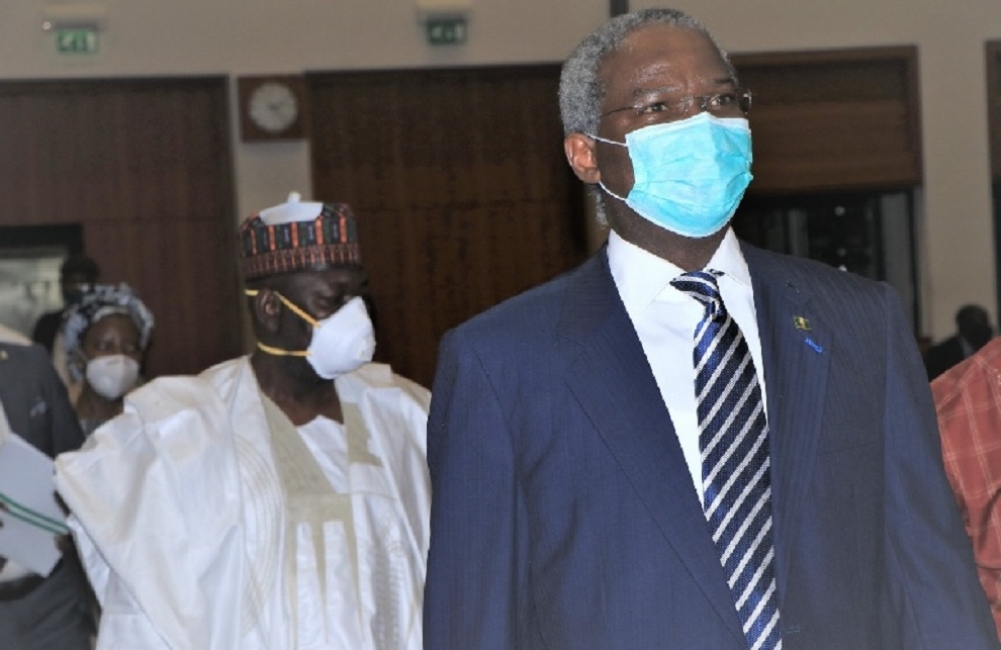
Private Sector Engagement In Highway Development, Management, Avenue To Mitigate Paucity Of Funds - Fashola
Works and Housing Minister, Babatunde Raji Fashola, SAN has stated that private sector engagement in the development and management of roads is an avenue to mitigate paucity of funds which has hindered road development in the past.
Fashola stated this in his presentation on Public Private Partnership (PPP) on Highway Development and Management Initiative to the joint National Assembly Committee on Works, Wednesday June 17th, 2020.
He explained that Highway Development and Management Initiative (HDMI) was created by his Ministry to manage and develop the federal road networks, with the objective to attract sustainable investment and funding in the development of road infrastructure and to maximize the use of assets along the right of way.
" The rationale behind the private sector engagement under the HDMI would provide an avenue that would mitigate paucity of funds, which had hindered roads development in the past" he said.
Ten (10) roads are to be concessioned under the first phase of the HDM initiative, namely: Benin – Asaba, Abuja – Lokoja, Kaduna – Kano, Onitsha – Owerri – Aba, Shagamu -Benin, Abuja -Keffi – Akwanga, Kano – Maiduguri, Lokoja – Benin, Enugu-Port Harcourt, Ilorin-Jebba.
The total length of the federal road network is 35,000km, but the proposed project in the first phase will cover a total lenght of 2.275km.
The project will attract a capital investment of N163.323bn at a cost of about N16bn per each of the 10 roads, in addition to about 23,322 jobs that would be created.
Explaining further, the minister said investors are expected to provide streetlights, toll plazas, rest areas, and weighbridge stations.
Accordingly, the Minister further explained that the HDMI was broken into two categories, namely: Value Added Concession(VAC) and unbundled Assets Approval (VAA).
He added that the Federal Ministry of Works and Housing, (FMWH), Infrastructure Concession Regulatory Commission,(ICRC), Bureau of Public Procurement, (BPP) and Special Purpose Vehicle Concessionaire were the defined stakeholders to provide the regulatory framework in the implementation.
Earlier, Senator Adamu Aliero, Chairman Senate Committee on Works who co -chaired the Joint Session with Honourable Buba Abubakar, Chairman House Committee on works, stated that it was imperative to engage private sector partnership to tackle the bad roads in Nigeria as government alone could not bear the burden of fixing them.
He said the Public Private partnership reduces the financial burden of government thereby allowing funds to be utilized in other relevant social economic sectors.
Senator Aliero assured the Honourable Minister of the tacit support of the National Assembly and promised to provide legislation that will strengthen and protect the laudable investment initiative.
Present at the presentation were the Minster of State for Works and Housing, Engr. Abubakar Aliyu, the Permanent Secretary, Mohammed Bukar, some Directors of the Ministry, and the Director General/CEO of Infraustructural Concession Regulatory Commission, Engr. Chidi Izuwah and and some other stakehokders.
Isang Iwara Bows Out Of Service...

Isang Iwara Bows Out Of Service
The Director of Human Resources Management, Federal Ministry of Works and Housing, Mrs. Isang Iwara on Friday 29th May, 2020 bowed out of service in grand style after a meritorious service to her father land.
Friday marked thirty-four years and six months she joined the service. She will be sixty years on Saturday hence her retirement yesterday.
Mrs.Isang Iwara born on the 30th of May, 1960, joined Cross River Civil Service in November, 1985. She transferred her service to the Federal Civil Service as Assistant Director, Administration in 2004 and was promoted to the position of Deputy Director Administration in 2010. In 2014 she became a full fledged Director. She was posted to the Federal Ministry of Works and Housing in 2018 as Director, Human Resources Management from where she retired.
Speaking at the event the Permanent Secretary of the Ministry of Works and Housing, Mohammed Burka represented by the Director of Planning, Research and Statistics, Dr. Famous Eseduwo congratulated her, saying that it was not easy coming out of the service unscratched because the service is most of the times turbulent.
Bukar urged the retired Director to sustain her positive contributions to the service in nation building.
He commended her for her expertise in the discharge of her duties while in service,adding that she was a person that was able to bring result with little resources.
The Permanent Secretary charged members of staff to imbibe Mrs.Isang Iwara's attribute of prudence as things are not what they used to be especially during this Covid-19 era.
Giving a goodwill message, the Deputy Director (Staff Welfare and Training, Housing) Mrs. Cecilia
Akuns described Mrs.Isang as an embodiment of a seasoned technocrat that Civil Servants must emulate. That though she has retired, she should make herself available any time she is called to serve in higher capacity.
In her vote of thanks, the retiring Director of Human Resources Management, Mrs. Isang Iwara thanked the Honourable Minister of Works and Housing, Babatunde Raji Fashola, SAN, the Honourable Minister of State for Works and Housing, Engr.Abubakar Aliyu,FNSE, Mohammed Bukar,the Permanent Secretary , director colleagues and other members of staff for affording her the opportunity to serve Nigeria in various capacities in the Civil Service.
Mrs. Iwara also thanked members of her staff and said that the successes she recorded were due to the crop of hard working and dedicated staff of the Ministry and the support she enjoyed from the management.
The retiring Director enjoined staffers of the ministry to extend their support and cooperation to her successor to serve the ministry and the nation better in service delivery.
FG Committed To Development Of Education Through Provision Of Quality Infrastructure ...
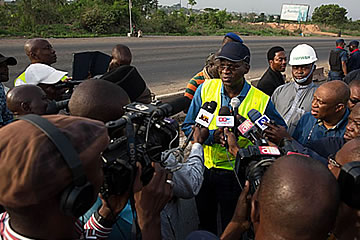
FG Committed To Development Of Education Through Provision Of Quality Infrastructure – Fashola
The Honourable Minister of Works and Housing, Babatunde Raji Fashola, SAN Tuesday reaffirmed the commitment of the Federal Government to the development of education in the country through the provision of quality infrastructure, saying it remains a vital means to impact quality in that sector.
Fashola, who spoke while handing over two kilometres rehabilitated internal roads and a paved parking lot to the Kaduna Polytechnics, said the Buhari administration also chose to invest in infrastructure renewal in the education sector in order to improve the learning environment in the tertiary institutions pointing out that the various feedbacks from the students of those institutions testify to the positive impact on the sector.
The 2.0 kilometre road project includes: Hamman Tukur Avenue, Yusuf Aboki Avenue, Abdullahi Crescent, Aminu Aliyu Close, Salisu Iliyasu Close, Yusuf Hassan roads and a roundabout linking them.
The minister, who was represented by the Federal Controller of Works Kaduna State, Engr. Finbarr James declared, “It is un-debatable that the quality of education will be impacted by the quality of infrastructure and the learning environment and those who doubt it should simply listen to some of the feedbacks from students in the schools where this type of intervention has taken place.”
Fashola noted with delight that the gap of Nigeria’s infrastructure needs was steadily being bridged by a gradual process of repair, renewal and construction on major highways and it has reached schools. He added that aside the impact in schools the project also generated employment for people thereby contributing to the job creation initiatives of the Federal Government.
Urging the academic community to take ownership of the infrastructure and ensure that they are carefully utilized in order to last their lifespan, Fashola promised that Federal Government would continue to intervene in education, explaining that the intervention by Federal Government would improve the ambience and environment of Federal Tertiary Institutions to enhance academic activities.
The Rector of Kaduna Polytechnics, Professor Idris Bugaje, expressed gratitude to the Federal Government and the Minister of Works and Housing for the intervention recalling that he met all the infrastructure in dilapidated state when he came to the institution. He added that with this intervention the institution had been able to repair most of the roads in the main campus and a few ones outside.
He told the audience at the brief ceremony, “When I came here in October 2017 the Kaduna Polytechnics was in very bad shape. The roads, the buildings, all the infrastructure had dilapidated.
We have also been able to do the pavement of the campus parking lot et cetera.”
“So we are most grateful to the Minister of Works and Housing”, he said, appealing to the minister that because the Polytechnics operates multi-campuses, the Federal Government should also intervene in the other campuses of the institution across Kaduna State.
In her remarks, the Kaduna Polytechnics Director of Works, Engr. Umm Kulthoom Aminu, also expressed gratitude to the Federal Government and the Minister of Works and Housing for including the Polytechnic in the on-going interventions pointing out that no regime in the country had ever dreamed of carrying out such intervention in the institution prior to the present one by the President Muhammadu Buhari led administration
In an interview with newsmen, the director declared, “We are grateful to the Federal Government and the Minister. No other regime except this one has ever thought or looked at the tertiary institutions. And as you can see yourselves, our parking space is something we will be grateful for, it will be here after this government and after other governments.”
She, however, pleaded with the minister for more interventions saying, “The Kaduna Polytechnics is a multi-campus institution. Aside this Main Campus in Tudun Wada, we have another campus in Baranawa, we call it College for Environmental Studies. We have another one in BYPASS, we call it College of Social Sciences. We have another campus, the College of Business and Management Studies where we have our farm, demonstration farm in a village called Nariya.
According to her the small road leading to the farm needs rehabilitation due to the insecurity in the state, particularly the incidence of kidnapping and other crimes that occur along the road. She believes an intervention on the road would facilitate the movement of students to and from the farm for practicals under a more secured environment.
The Welfare Officer of the Polytechnics’ Students Union Government, Mr. Isa Ibrahim, in his remarks also expressed “sincere appreciation to the Federal Government for deeming it fit to choose Kaduna Polytechnics as one of the tertiary institutions to touch in the on-going interventions across institutions in Nigeria”.
Ibrahim, who is in the Department of Electrical and Electronics Technology, said, “This is my five years here as far as this Polytechnics is concerned and nothing of this nature had happened. We thank the Federal Government for seeing the need to touch these roads and since the interventions, movement has been made a lot easier for pedestrians and vehicle owners within the school campus including the lecturers and the students.”
In an interview with journalists the Controller of Works Kadun State, Engr.Finbarr James reiterated that the need for the interventions in the nation’s tertiary institutions by the Federal Government was a response to create a conducive learning environment and impact on the quality of education in the institutions. He added that prior to the intervention in Kaduna Polytechnics the roads were in “a sorry state” with the walkways impassable in some areas.
“Those who drove at nights within the campus often got accidents, students got accidents at nights while going to classes, vehicles were having accidents. There is a roundabout there where there was not traffic lights, people drove any how even with the bad state of the place. It was and obvious problem and when we saw all these things we had to write to include this institution as one of those to benefit from the interventions.”
Environmental And Other Factors Affecting Work On Port Harcourt-Enugu, Ab...
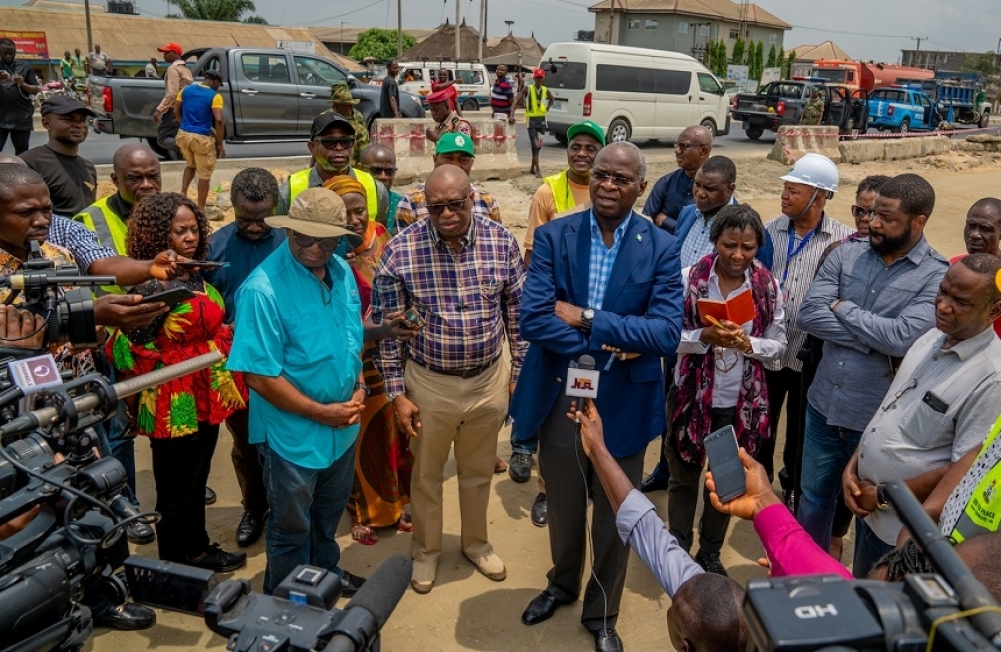
Environmental And Other Factors Affecting Work On Port Harcourt-Enugu, Aba -Port Harcourt Road- Fashola
The Honourable Minister of Works and Housing, Babatunde Raji Fashola, SAN said what was delaying the completion of the Port Harcourt- Enugu, Aba-Port Harcourt highway were environmental and other factors.
Fashola stated this in Port Harcourt Rivers State during an inspection of the Port Harcourt - Enugu section of the highway.
He said: "We must first remember that if you do not have water, you cannot be a Port City. Essentially, we are building on water. It is a very challenging environment for infrastructure, " he explained.
He appealed to the host communities to be patient with the Federal Government and show cooperation as Government was committed to providing bigger, better, wider and safer road for them.
"As you can see, our plan is to deliver eight lanes from what was four lanes since we intend to make our experience better this rainy season than last year."
He added that though the work would not finish this year,Government intended to finish the four lanes, divide the four lanes into two; an incoming and out ward bound traffic that would facilitate free flow of traffic.
According to the minister, that would serve as a form of relief to commuters and other road users as nine Kilometres of the road from Eleme junction is in between Port Harcourt urban and metropolitan. "It is another challenge as it is already a built up area, " he said.
Speaking on why the road construction was delayed, Fashola stated, " A lot of sand filling is going on here, the road is dug well over two metres and we have to remove the bad soil and replace it with good soil and this accounts for a lot of dredging work going on here."
He also explained that part of the road was passing through already built area, some buildings had to go as well as relocation of power lines. "These are the challenges and the reasons this road is taking time to be built."
Fashola further said that our experience this year would be better than last year. But he quickly called for the cooperation of commuters, communities, Local and State Governments to fast track the construction of the road. "We expect people to cooperate with us.We expect people not to park vehicles on the construction sections because you obstruct traffic. Our highways are not parking lots" He directed that any vehicle parked on any part of the construction sections of the highway should be impounded.
FG's Road Intervention In FCE Eases Access To Seven Schools - Provost...
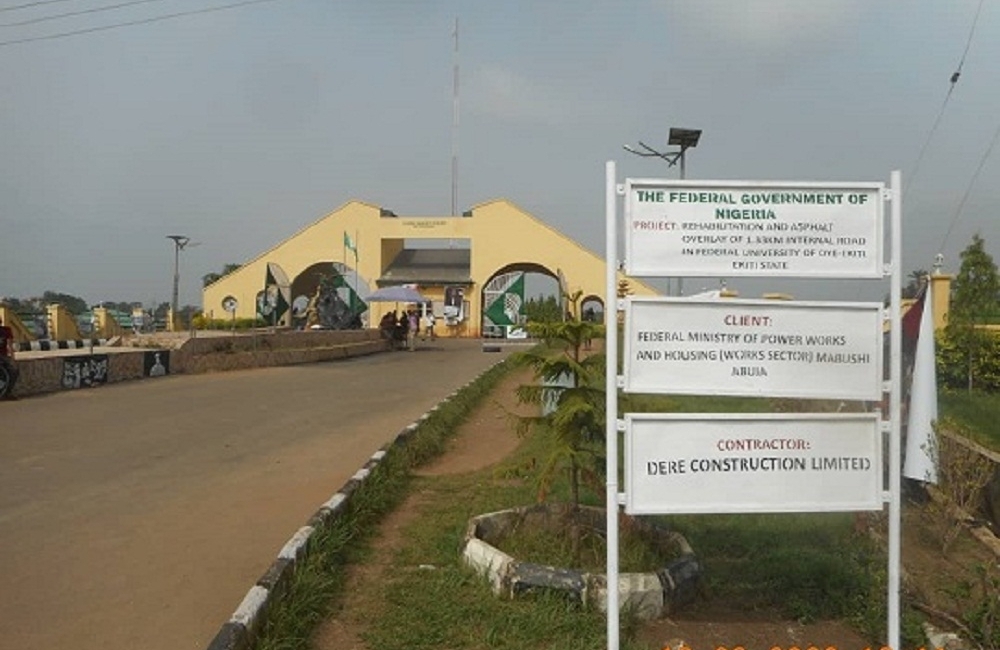
FG's Road Intervention In FCE Eases Access To Seven Schools - Provost
Provost of the Federal College of Education, Katsina, Dr Aliyu Idris Funtua has stated that the construction and rehabiliitation of the 1.22km internal road in the Federal College of Education Katsina by the Federal Ministry of Works and Housing has provided easy access to seven schools within the college.
Dr Funtua listed the schools touches by the road within the College as; schools of education, languages, Adult & nor formal education, sciences, primary education & early childhood care, computer science department, and Art and Social sciences school.
Other areas where the road passes are, Library and Girls Hostel.
The Provost made this remarks during the handing over of the 1.22km internal road project completed by the Federal Ministry of Works and Housing.
"I remain grateful for this gesture, a commendable intervention. The road is the best road in the school that touches seven schools and has provided ease of access within the college" he said
Dr Funtua who commmended the Federal Government and the Honourable Minister of Works and Housing, Babatunde Raji Fashola, also solicited that the minister to extend another 10km road in the school in the near future.
The minister was represented at the handing over ceremony by the Katsina state Federal Controller of Works Engr Tunde Balogun.
The Minister said that, " it is undebatable that the quality of education will be impacted by the quality of infrastructure and the leaning environment and those who doubt it should simply listen to some of the feedback from the students of the schools where this type of intervention has taken place."
Accordingly, Fashola also disclosed that, out of the forty three of such road intervention in tertiary institutions by his ministry across the country, seven have been completed of which the one in the Federal College of Education Katsina was among
Resentatives of the students in the college who spoke include; Zaharadeen Sani, Aliyu Sa'du and Zulaihat Abdulrahim.
According to the students, "the poject was timely, beneficial and has eases access to seven schools for our lectures and easy access to Library and Female Hostels"
Zaharadeen said ' this is a remarkable achievement since the inception of this administration and we appreciate the minister for this intervention"
Build On Knowledge And Value- Fashola...
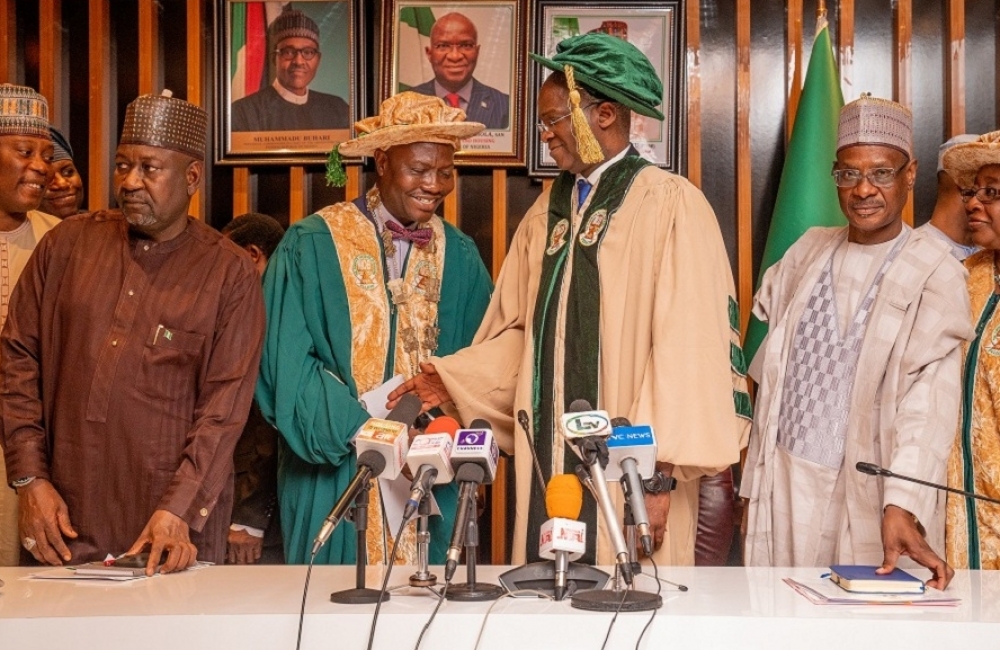
Build On Knowledge And Value- Fashola
The Honourable Minister of Works and Housing, Babatunde Raji Fashola, SAN has urged builders in Nigeria to deploy knowledge and value in building projects, pointing out that it was the combination of both that give value to building.
"We need to build on our knowledge and value. It is these that give meaning to the bricks and mould we use. If we build without knowledge, it will not last, " he said.
Fashola made the remarks while receiving the Fellowship Award of the Nigerian Institute of Building in Abuja yesterday.
The Minister used the occasion to debunk the news going round that Federal Government was planning to sell un-occupied houses. According to Fashola what the Government was saying was to encourage big house owners to break them to small units so that people can rent or buy them and start to make income from such houses.
He also charged builders to build what people can use, instead of building big houses only to be left unused. He said, "Build to the sensitivity of the young generation by building small houses."
Fashola thanked the Institute for the conferment of the award on behalf of the Ministry saying that it was a recognition of hard work and team spirit.
"On my own, I will do my best to live up to the responsibility of encouraging the building of affordable houses", he stated.
Earlier, the National President of the Nigerian Institute of Building, Builder Kunle Awobodu said that, "The conferment of the prestigious honorary fellowship of the institute is the highest recognition to be bestowed on an individual solely based on performance evaluation of which Fashola is a beneficiary."
He said that construction of buildings is a barometer of a thriving economy, adding that what distinguishes a city from a town, and a town from a village is the number and quality of buildings.
Speaking further, he stated that, " Any nation bereft of building codes is vulnerable to inappropriate building construction."
He therefore called on manufacturers of building materials, artisans and professionals that the culture of doing it right must be embraced.
He enjoined the Minister not to relent in his efforts to ensure the use of Nigeria's building code to guide building construction in Nigeria.
Safety Is A Key Factor For All Workplaces – Aliyu...

Safety Is A Key Factor for All Workplaces – Aliyu
The Honourable Minister of State for Works and Housing, Engr. Abubakar Aliyu has reiterated that in order to promote the wellness of both employees and contractors in the ministry, safety is a key factor in all construction sites.
The Minister made this assertion at the opening ceremony of a two-day workshop on Specialized Health and Safety, Training for Engineers/Officers of the Federal Ministry of Works in collaboration with the Occupational Safety & Health Association (OSH Association UK Nigeria – Region with the theme “Safety First in the Construction Site) on Thursday 22nd October 2020 in the Ministry.
Abubakar Aliyu, who was ably represented by the Director Human Recourses Management, Umar Utono stated that the objective of the workshop was to equip the engineers and field officers in the ministry with the knowledge and skills that will help them discharge their duties in the worksites and ensure safety of workers during construction activities in the country. Continuing he said that at the end of the workshop, the Engineers and officers would be equipped with the necessary knowledge and managerial skills to supervise construction sites without risk of accidents.
The Minister noted that one major factor responsible for accidents and deaths at workplaces was poor safety attitudes of workers, contractors and supervisors in charge of projects. He said improving safety at worksites had now become government priority to ensure change of attitudes of workers and contractors working at sites.
According to him, globally over 63,000 people die as a result of occupational accidents or work-related illnesses while 317 million accidents occur on the job annually. He stated that the global statistics by the International Labour Organization (ILO) were worrisome and government is committed to reducing accidents and fatality rates in construction sites.
The Minister disclosed that the Ministry would like to partner with professional institutions like Occupational Safety and Health Association UK – Nigeria Region being one of the leading organizations in the field of Occupational Safety & Health that strive to achieve the mandate of the Ministry towards zero fatalities at worksites. He requested OSHA to work closely with the relevant Departments of the Ministry on capacity building and training of staff on Health, Safety, Security and Environment (HSSE)
Aliyu pledged government total commitment towards implementing safety best practices in every activities of the Ministry.
Earlier in his opening remark, the Director of Engineering Services, Federal Ministry of Works and Housing, Engr. Julius Olunrinola said the Ministry have stepped up inspections and enforcement actions hence the need to deploy safety Engineers/Officers to all construction sites to enforce HSSE Policy.
Also speaking at the event is the President of OSH Association UK – Nigeria Region, Dr. Dahatu Mohammed who affirmed that safety was fundamental, basic and everyone’s business. He added that this safety workshop was very important to the Ministry as 90% of work done by the Ministry is basically construction. The creation of awareness to workers is meaningful to be able to achieve zero accident in construction sites.
Safety tips were highlighted by the Deputy Director, Central Workshop & Equipment Unit, Engr. Augustine Okwudiafor, as follows:
In time of emergency –
a) Do not panic
b) Stop all you are doing
c) Leave calmly at the pace of the person in front of you
d) Do not use the lift
e) Assemble at the designated muster point
Quality Engineering Education Ensures Delivery Of World Class Infrastructure – ...
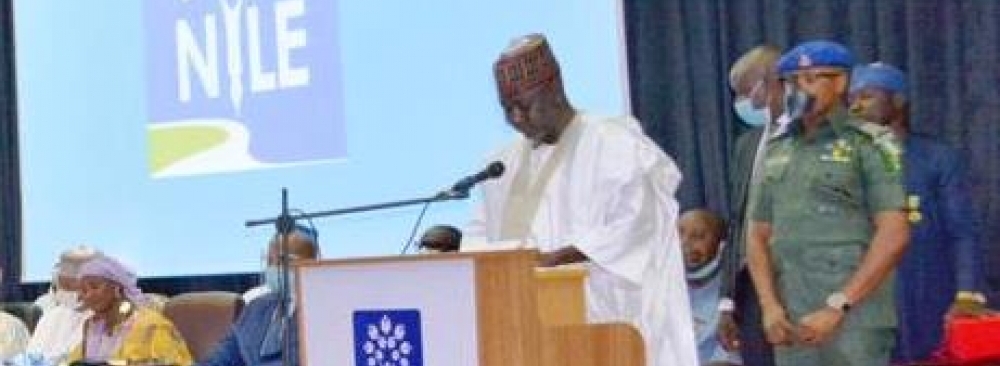
Quality Engineering Education Ensures Delivery of World Class Infrastructure – Engr Aliyu
Minister of State for Works and Housing, Engr Abubakar Aliyu has stated that focus on quality engineering education will ensure the delivery of world class infrastructure in order to better the lives of citizens
The Minister was speaking as a Special Guest of Honour at the 18th International Conference and Annual General Meeting, (AGM) , of the Nigerian Institution of Civil Engineers (NICE), which was held in Abuja, with the theme “ Reform of Engineering Education: A Strategy for Sustainable Development in Nigeria.
In his reaction to the theme of the Conference, he said “… it is only fair that we focus on quality engineering education in order to ensure the delivery of world class infrastructure to better the lives of our citizens”
Engr. Aliyu also explained that, it is only through a better adoption and adaption of Engineering that we can share in the good life that it offers in other climes, and this he said can solely be achieved through quality Engineering education
Accordingly, the Minister noted that Sub-Saharan Africa seriously lacks engineering capacity and relies heavily on imported expertise, which he said was attributable to insufficient output from training institutions, poor- quality education, and lack of practical experience among graduates.
He said that according to UNESCO landmark report on Issues, Challenges, and Development Opportunities, Nigeria produces 3,500 engineers a year, a modest number relative to its population, but suffers significant unemployment among them because of the lack of the requisite training.
However, the Minister assured the delegates that the administration of President Muhammadu Buhari, in line with its change mantra, is committed to development of the engineering profession considering its critical role in bringing about sustained economic growth.
He added that this administration has heavily invested on Research and Development generally and particularly on engineering education, however only modest achievement was made due to challenges that are huge but not insurmountable.
He also pointed out that synergy and harmonization of programmes, cooperation and collaboration can link Nigerian engineers’ consultancy services to global practices and marketing frameworks
Earlier, in a welcome address, the National Chairman of the Nigerian Institution of Civil Engineers (NICE), Engineer, Mrs Aishatu Aliyu Umar stated that the annual Conference which is the second in her tenure is exceptional to Civil engineers who gathered from different sectors of the economy to deliberate on the sustainable ways to enhance the profession.
She added that the conference is also an opportunity for the engineers to individually analyse their performance, asses impact and restrategise on ways to practice the profession for sustainable development of the nation
Engineer Umar described the 2020 theme as well thought out considering the fact that the World is being reshaped for better technological advancement and Nigeria cannot continue to be left behind.
While delivering an opening address, the President of the Nigerian Society of Engineers, (NSE), who was also the Chairman of the occasion, Engineer Babagana Muhammed described the annual conference and AGM as a gathering of professional engineers for the advancement of engineering practice in Nigeria in line with the global best practice.
Engineer Muhammed urged engineers to talk to stakeholders in their respective states on the water bill so as to give it the necessary support that will be in the interest of the people. He charged Nigerians who have the wherewithal to give back to society especially those that enjoyed free education.
Among the dignitaries that graced the occasion were: Engineer Umaru Bago Tafida, the Emir of Lapai and Royal Father of the day, Engineer Alimasuya Rabiu, President of COREN, Michael Jiang Yigao, Chairman/MD CCECC, Engineer Chris Okoye, Chairman/Principal Consultant CCGE Ltd
Repairs On Murtala Muhammed Bridge: FG Assures Of Timely Completion...
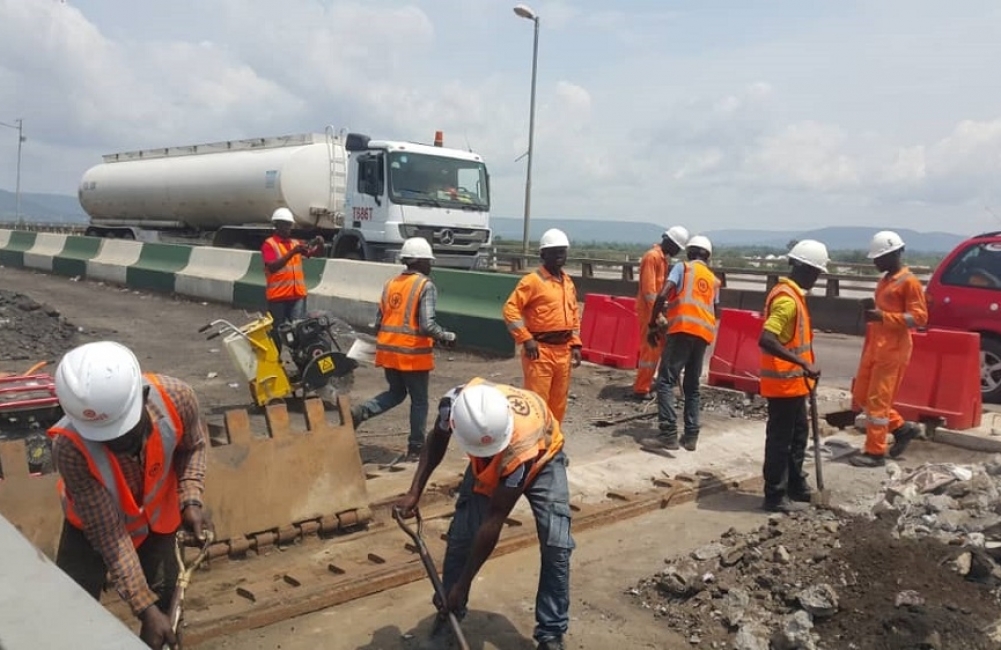
Repairs on Murtala Muhammed Bridge: FG Assures of Timely Completion
The Federal Government has assured road users that the repairs on Murtala Muhammed Bridge along Kotonkarfe - Lokoja road will be completed on schedule despite the challenges caused by the corona virus and the rise in the tide of the River Niger.
The assurance was given by the Director of Highways and Bridges in the Federal Ministry of Works and Housing, Engineer Emmanuel Adetunji Adeoye who was at the site to access the progress of work on the bridge. The Director said, “ Before the rains came, around May and June they did a lot of under water works and at that time the public was not noticing.”
“Because the water has come up now and they cannot really do much of the underwater works, that’s why they are doing the surface work that everyone is seeing but when we get towards November and December they will go on to continue the underwater works”. Looking at the time and the work they have done so far, I believe they are still within the schedule.”
Engineer Adeoye added that although the contract was awarded on the 10th of March, 2020 but due to the Covid 19 pandemic, work commenced on the 11th of May, 2020 and the work is expected to be completed by 10th May, 2022.
He appealed to the public to show understanding and be patient as government was committed to the repair of the bridge. The Director said, “My appeal to road users is they should be patient and know that government is committed to the repair of the bridge.” He advised people to follow the instructions of the security personnel on ground so as to enjoy free flow of traffic.
The representative of the Contractor Engineer Ebenezer Princewill said the company, Hallekem Limited was prepared to deliver the contract within schedule as long as funds were provided. On local content he said available local materials were being used while most of the workers were from within the area.
He said, “In this community we are training people on the project. We are also empowering the youths and have employed about thirty Nigerians for the job.”
FG To Support Infrastructure Development Of Niger State...
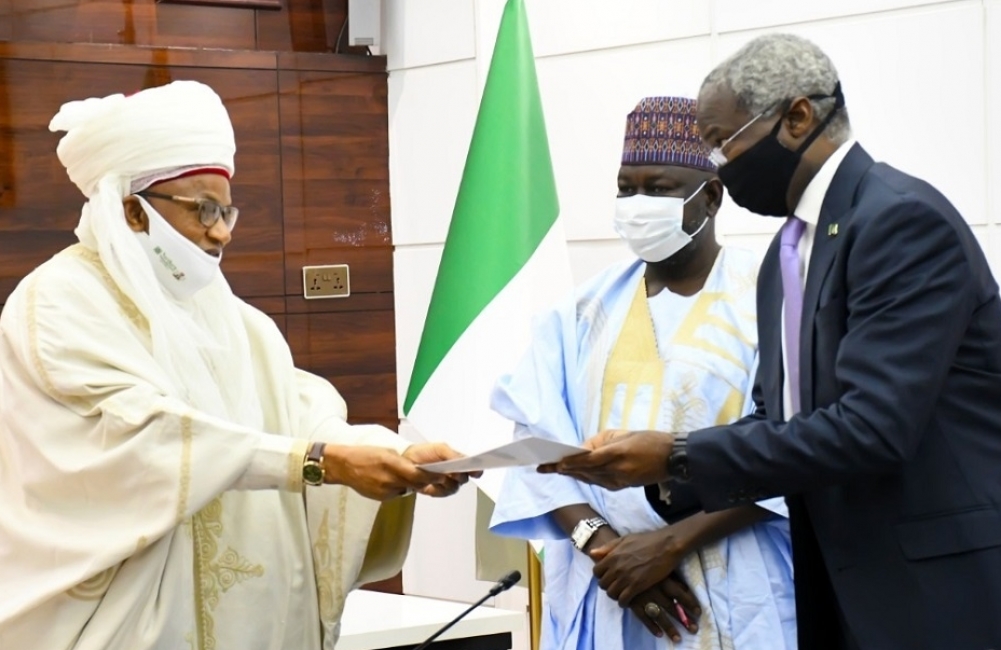
FG To Support Infrastructure Development of Niger State
The Minister of Works and Housing Mr. Babatunde Raji Fashola, SAN has said that the Federal Government would support infrastructure development of Niger State as articulated by the State Government because of the state’s economic activities and its strategic North-South connectivity.
The Minister stated this when the Chairman of the Niger State Council of Traditional Rulers led by His Royal Highness, Dr. Yahaya Abubakar, CFR, the Etsu Nupe paid him a courtesy visit in his office.
Speaking on the importance of Niger State to the nation, the Minister stated that amongst the nine areas of commitment of the Buhari led administration as announced during the recent Presidential Retreat in Abuja, fuel supply and power supply were strategic areas related to Niger State.
Continuing, he said that apart from the fact that the state is well known for its commerce, it also hostedone of the nation’s hydro power plants. “We cannot therefore achieve anything if we do not support the development of Niger State as articulated by the governor,” he stated.
Fashola stated that there are fifteen projects in Niger State inclusive of construction and rehabilitation of road and bridge projects pointing out that most of the roads that pass through the states are A1 roads.
He promised to expedite works on the projects adding: “We are mindful of the important role Niger Statehas to play in national development and Mr. President is determined to continue to invest in infrastructure development like roads and bridges across the country.”
Earlier, the Chairman, Niger State Council of Rulers and the Etsu Nupe,His Royal Highness, Dr. Yahaya Abubakar, CFR said that the purpose of their visit was to thank the Federal Government for on-going notable road projects in Niger State.
He said some of the projects, which included the award of the dualisation of Mokwa bypass when completed, would be a great achievement as it would relieve the people in Mokwa town from traffic hardship.
Speaking in the same vein, he said that the award of Bida Nupeko, Sachi, Patigi road when completed would be of a great relief to the Nupe kingdom in Niger and Kwara States.
While calling on the Federal Government to complete all the awarded projects in the state, the Monarch appealed to Federal Government to look into the dilapidated Lambata, Lapai, Agaie, Bida roads which are major links between the North Central, the South West Region and the country at large.
Loko-Oweto Bridge Providing Shorter Route Says Minister...
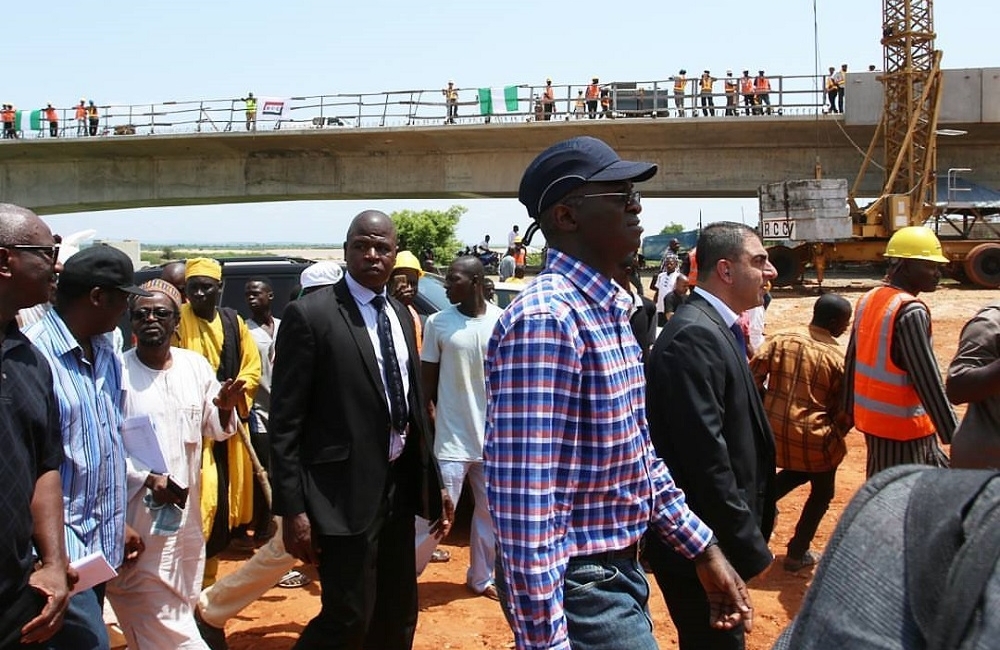
Loko-Oweto Bridge Providing Shorter Route Says Minister
The Minister of Works and Housing, Babatunde Raji Fashola, SAN said the construction of the Loko-Oweto Bridge across River Benue has offered shorter route for travellers , reduced travel hours to its barest minimum and facilitated redistribution of wealth in the local communities.
Fashola made the remark on the bridge during an inspection tour to the project with his counterparts from ministries of Informational and Culture,Alhaji Lai Mohammed, Special Duties and Inter-Governmental Relations, Senator George Akume.
The Loko-Oweto Bridge Mr. Fashola said “Provides a shorter route cutting off about four to five hours. For someone coming from Cross River to Abuja by road, ordinarily will have to go from Calabar to Ikom, Ogoja to Katsina-Ala and then join Markudi, come through Lafia then Keffi and Akwanga into Abuja; but now you have a bifurcation through Oweto to Nasarawa."
Apart from the Loko-Oweto bridge project, Fashola said work was going on at the 2nd Niger Bridge, the Ikom Bridge and 37 other bridges across Nigeria were being constructed, repaired or rehabilitated by his Ministry.
According to the Minister of Works and Housing some of the bridges being constructed, rehabilitated and repaired were: the 3rd Mainland Bridge in Lagos, the Murtala Mohammed Bridge in Koton Karfi and the Isaac Boro Bridge in Port Harcourt.
Others were Chanchangi Bridge in Niger state, linking Niger and Ilorin and the Tambuwara Bridge in Kano.
Mr. Fashola further said “This government in spite of very limited resources and having to borrow is simply doing almost the near impossible in terms of infrastructure. Mr. President continues to give his support and commitment to infrastructure. His understanding of the purpose of infrastructure for growth and development is very clear”.
Speaking earlier the Minister of Information and Culture, Alhaji Lai Mohammed was enthusiastic that with the completion of the bridge, the South-South and the South-East will be connected to the North and this would save five hours of travel time on the road. He said Benue state would automatically be the food storage of the Federation by drawing people from every part of the nation while generating economic growth on one hand it would advance social cohesion on the other hand.
On foreign loans, Mohammed said, "Yes we are taking loans.We are also making judicious use of the loans. And while these loans have a life span of 20-50 years, the roads we are constructing will have 50-60years lifespan and outlive many of us”.
Also lending his voice, the Minister for Special Duties and Inter-governmental Relations, Senator George Akume urged the people to maintain peace and order among the various communities where the project is sited owing to the fact that the project was a huge one intending to serve not just Benue and Nasarawa states but also the larger Nigerian population.
The Emir of Loko, HRH Alhaji Abubakar Ahmed Sabo Sarikin Loko and Second-Class Chief of Agatu HRH Chief Godwin Ngbede Onah expressed appreciation to the Federal Government over the construction of the Loko- Oweto Bridge which had impacted on their lives positively.
The Loko- Oweto Bridge Project is 97.37% completed.
Fashola Charges Universities On Preparation Of Young People For Leadership...
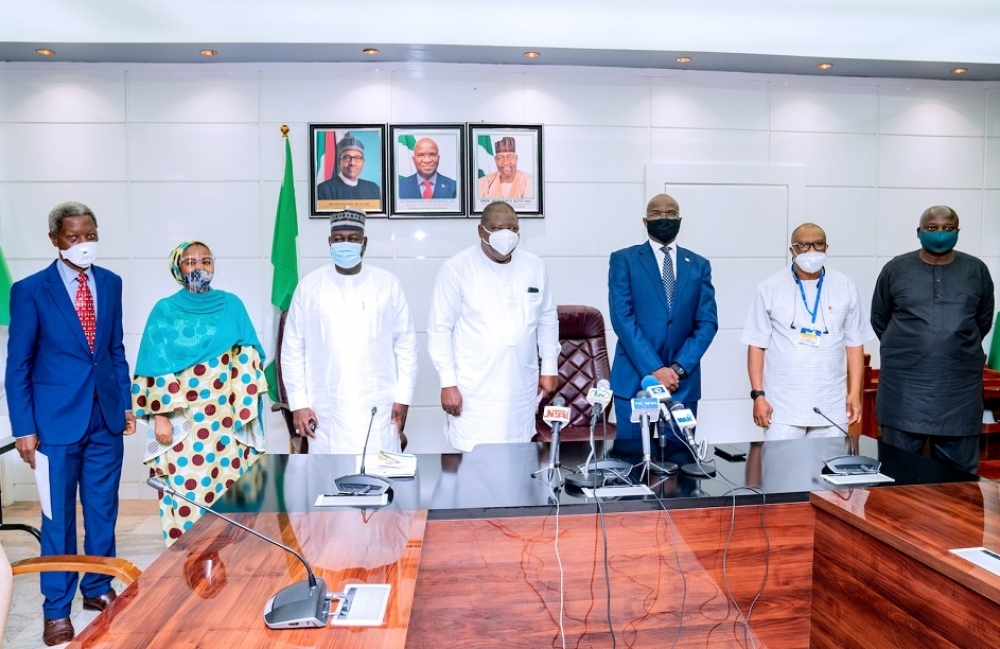
Fashola Charges Universities On Preparation Of Young People For Leadership
* As Committee of Vice Chancellors hails FG, Minister over interventions in 44 tertiary institutions, infrastructure development across the country
* Minister describes those who set up universities as “casting a stone of faith into the future”
* Also charges them on research and data collation to assist governments and businesses
The Committee of Vice Chancellors of Nigeria has commended the Federal Government over interventions in 44 Federal tertiary institutions as well as the on-going infrastructure development across the country just as the Minister of Works and Housing, Mr. Babatunde Fashola SAN charged the nation’s universities on the need to produce men and women of character worthy to take over the leadership of the country.
Fashola, who spoke when the Committee of Vice Chancellors/Association of Vice Chancellors of Nigerian Universities (CVC/AVCNU), paid him a courtesy visit, also stressed the importance of universities as a place where the characters of young people were finally shaped in readiness for leadership.
Stressing the importance of universities as platforms for character molding, among other functions, the Minister, who described investment in universities as “casting a stone of faith into the future”, said it was an investment that always yielded very enormous profit for any nation.
“It is a place where young boys and girls transit to becoming young men and women and that is where their characters are finally shaped in readiness to take over the leadership of the country”, he said adding that as overseers of the institutions, the Vice Chancellors have daunting tasks to accomplish.
Assuring the University dons of government support to ensure success, Fashola declared, “Somebody like me, I am a product of an investment of those who set up the University of Benin. Also there are many Nigerians who, like me, are products of that act of faith that happened in the 1970s”.
“I sit here today, and there are Senators, Senate Presidents and so many other professionals who were also products of that investment. And what is true of the University of Benin is also true of all other universities across the country”, he said.
The Minister, who also charged the Universities on the collation and use of data, said the world was now chasing data and there was, therefore, need for the universities to put in useful form the data they have accumulated over the years to assist governments and businesses in the country in national development.
“The world is chasing data, collating data. This data is sitting in our universities. Almost every lecturer I know asks students to write one research paper or the other. The data is there, but can we put it in a useful form to inform our governments, to inform our businesses, to inform our society?” he said.
Recalling his years as Visitor to the Lagos State University (LASU), Fashola, who noted that they had meetings which they christened “The Town and Gown”, with the Town representing Government and the Gown representing Universities, said his administration gained a lot in terms of research outcomes and development.
“It was a time when we had lectures, symposia, not just in LASU but in other universities”, he said adding that the University of Lagos Consult was one of the state government registered consultants which his administration used to do a lot of research and a lot of consultancy work.
The Minister, however, expressed regrets that not enough universities were investing in such consultancy today pointing out that there are many areas in which Nigerian universities could do research and consultancy such as on general elections and other political issues arising from elections across the country.
Noting that every government would be interested in such research results, the Minister asked, “How many universities have hosted Presidential Debates? You have the auditorium, you have the students, If you put it together you will have sponsors”, adding that governments and the universities could work together to ensure that the right persons were elected into office.
On collaboration between his Ministry and the Universities in infrastructure development in tertiary institutions, Fashola, who expressed readiness to work with the institutions to strengthen their infrastructure, however, urged them to come up with a structured plan adding that any such plan that would ensure security of investment would attract investors.
Assuring the university dons of his readiness to collaborate with them in infrastructure development in the tertiary institutions, Fashola asked them to develop a plan for such investment adding, “When there is a plan, money will come”.
“Let us start from hostels. Students are paying something or the other, but is there a structured plan to ensure that there is land, to ensure that the land is safe, to do a survey about students’ willingness to pay. What is the average size of rooms available? What is the market cost, transport cost that is safe? Those are the things that any investor would want to know”, he said adding that an investor would also be interested in knowing that the academic year would not be disrupted by strikes of either the academic or non-academic staff.
Expressing confidence that investments in infrastructure would happen in universities in the country, Fashola declared, “I offer myself willing and ready to work with you along this line anytime”, adding that the Ministry was currently in 44 tertiary institutions owned by the Federal Government, both Universities, Colleges of Education and Polytechnics building their internal roads.
“Some of those roads have not been touched for 20 to 30 year”, the Minister noted expressing dismay, however, that when people complain about the budget for education, they do not put into account such investment as road rehabilitations and other interventions from other sectors outside Education.
He told his guests, “We want the universities to come out and say, no this is also investment in education. So it is not only what you see in the Ministry of Education that is the sum total of the investment in Education”, adding that there is a lot that the universities could do
Fashola also decried the proliferation and abuse of Honorary Degrees by universities in the country recalling that in his eight-year tenure as Governor of Lagos State and Visitor at LASU one of the things his administration did was to put on hold the award of any Honorary Degree for about two to three years.
“We said, look we are going to be different and for two or three years we did not award any Honorary Degree because truly the idea of Honorary Degree is an important building block of society and once we throw those blocks away or make them unviable then the purpose for it is lost”, the Minister said.
He recalled. “In my eight years in office I had 17 offers and I didn’t take one. I told them to wait until when I was out of office and if they still find me worthy they should then come. And when I was out of office only one came back”, adding, “The point I want to make is that we have to encourage our children to work hard. What have these honorees of the universities done to deserve the honour? What of those who have become undeserving, will you go back and tell them to return the degrees, that they don’t deserve it anymore?”
Noting that there was need to have an acceptable version of the History of Nigeria, Fashola charged the Committee to assemble the many professors of History in the universities and assign the task to them to produce such a version that would be a true History of Nigeria, acceptable by all Nigerians, including the Historians themselves.
“There is one thing you can do for Nigeria. Bring all these people together to start work on one acceptable version of Nigeria’s history. It is that version that can be thought in primary and secondary schools. Because that is what is happening in other countries. They fought wars too but they have written one final version of their history. When you have written that final version it will be thought in our primary and secondary schools”, the Minister said.
Earlier, in his opening remarks, the Chairman of the Committee, Professor Yakubu Aboki Ochefu, said the Committee had come to express gratitude to the Minister for the interventions in 44 tertiary institutions across the country adding that it was the first time government was undertaking rehabilitation of roads in the institutions.
Professor Ochefu, who also informed the Minister that the Committee was preparing a Compendium of Achievements as part of programmes being lined up to celebrate its 60th anniversary in October this year said the Committee had prepared a questionnaire for the Minister to fill that would give them an insight into his infrastructure development at the Lagos State University while he was Governor of Lagos State, which would form part of the Compendium.
Giving a brief background of the Committee, the Chairman said it was established in 1962 with eight universities, including the Universities of Lagos and Ibadan as members adding that the membership now stood at 174 consisting of 46 Federal, 48 State and 79 private universities. He noted that the Committee was working to improve the number of women Vice Chancellors in the country.
Professor Ochefu, who later handed a copy of the questionnaire to the Minister explained further, “We will devote a section of the Compendium to share with you how you turned the fortunes of the Lagos State University (LASU) during your tenure as Governor of Lagos State and Visitor to the University.
Also present at the occasion were the Minister of State, Engr. Abubakar Aliyu, Acting Permanent Secretary, Engr. Yemi Oguntominiyi, Directors, Special Advisers and other top Ministry functionaries while on the Committee’s side were three other executives including the Secretary General of the Committee.
Buhari’s Commitment To Infrastructure Is Monumental, Unprecedented – Fash...
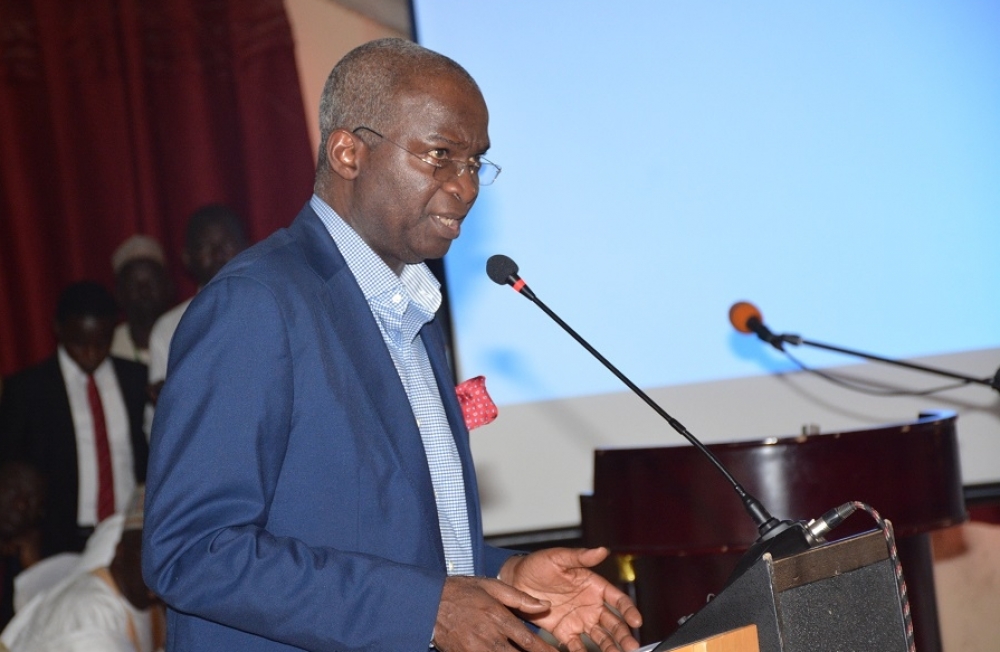
Buhari’s Commitment to Infrastructure is Monumental, Unprecedented – Fashola
The Honourable Minister of Works and Housing Mr. Babatunde Raji Fashola, SAN has described the commitment of the Buhari led Administration to Infrastructure development as monumental and unprecedented. The Minister made this description while responding to questions on Radio Nigeria phone-in programme “Have your say” this morning.
Fashola hinged his commendation on the Infrastructural transformation work being implemented in the various sectors of the economy such as works and Housing, Transportation, Digital communication and economy, adding that if
these were done in the past, the situation of the economy of the country would not have been as bad as it is now.
While responding to the question on why many Federal roads were still in bad condition and why it was taking time to be completed, Fashola attributed it to procurement process, limited resources and the process of road construction.
Citing an example of the Abuja - Lokoja road, he said the road which is about 300kilometre long was being expanded from 2 lanes to 4 lanes, which means that the entire work on that road is about 1200 kilometres.
He added that a section of the road had been completed remaining only the section from Kotonkarfe to Lokoja, “some section have been completed, what is remaining is from Koton Karfe to Lokoja, which we are trying to finish”, he said.
Fashola mentioned Lagos -Ibadan, Enugu –Port Harcout, Kano –Maiduguri, Ekpoma –lokoja roads among those that have been partially completed. The Minister said most of the roads were being reconstructed as some of them
were impassable before now, citing Benin- Ore - Shagamu, Enugu –Port Harcourt roads. He urged Nigerians to be patient with the government considering the fact that these bad roads which were left undone by the previous administration when oil was selling at $140 per barrel are now being reconstructed and rehabilitated by the Buhari Administration at a time that oil price per barrel is less than 50 dollars.
The Minister who disclosed the plan to finish 22 roads between 2020 and 2022 explained that the Federal Government was currently concentrating on Federal roads which are interconnecting states. “Our roads are those that connect state
to state. We are focusing on them, it is when we have done these key roads that we will concentrate on others”, he said.
On the housing sector, The Minister who was asked why some houses that had been completed by the Federal Government were yet to be allocated, said, “Some of the houses have been completed but there is still a lot to be done. In
some cases we have not finished electrical connection to public power, we have not finished internal road work, there have been cases of theft and pilfering and we are doing replacement”.
Fashola revealed that a digital framework was been worked out to ensure that application is done online to avoid undue influence from anyone. He also said that Federal Government was considering giving some allocations to State
Governments for onward allocation to their indigenes since the States donated the land.
He called on State Government and the Private sector to complement the effort of the Federal Government in the provision of houses to the people in overcoming the housing deficit.
SUKUK: Fashola Commends Govt-Private Sector Partnership On Infrastructure Development...
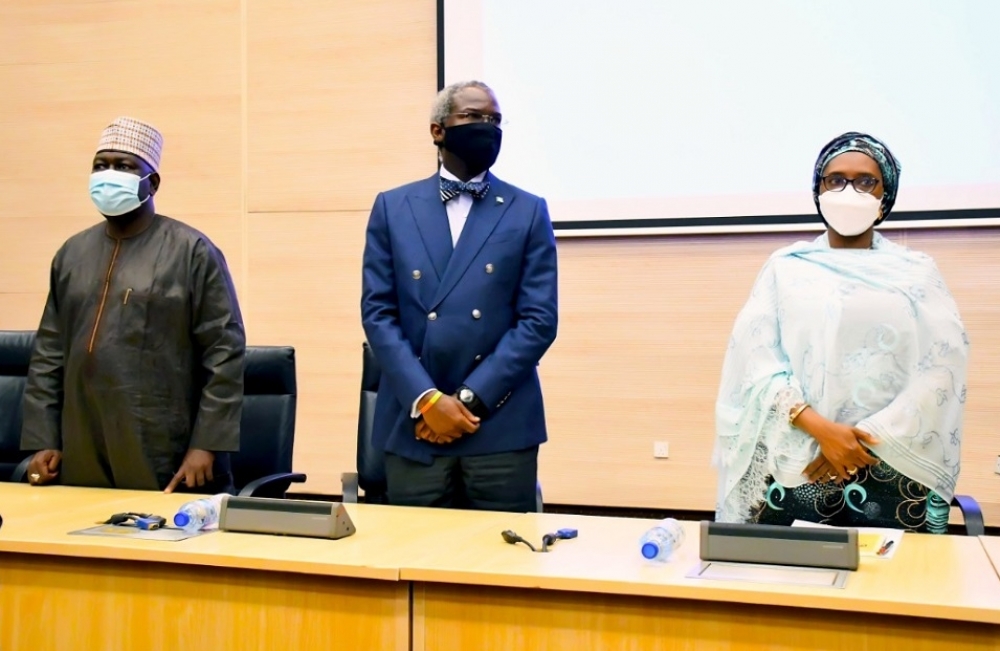
SUKUK: Fashola Commends Govt-Private Sector Partnership on Infrastructure Development.
Minister of Works and Housing, Babatunde Raji Fashola, SAN, has commended the partnership between the government and the private sector in the provision of SUKUK financing in roads project across the country.
Fashola spoke during a presentation of N162, 557,000,000 Sovereign Sukuk Symbolic Cheque to the Federal Ministry of Works and Housing in Abuja,, Monday, July 20,2020.
According to Fashola, fourty-four (44) Federal Roads spread across the six geo-political zones are being financed under this SUKUK roads project. He listed the number of roads project being executed per geo-political zone as follows: North Central having eight, North East Eight, North West Seven, South West Six, South East Five and South South having Ten road each with the breakdown of the financial implication as follows: North Central N26.5b, North East N30.5bn, North West N26.5bn, South east N26bn, South South N26bn and South West N27.05bn.
Speaking on the recent public debate on govt borrowing and the concerns being raised by Nigerians, Fashola explained that, with this Sukuk projects distribution, Nigerians will now see where and how the monies were being spent.
Fashola also listed the many economic benefits of roads construction to the people, saying that a lot of jobs have been created for labourers, artisans, suppliers of building materials, sands suppliers, farmers and even food vendors who make their daily earnings from the construction sides.
"President Muhammadu Buhari has been legitimately distributing wealth through investment in road infrastructure and the 100 million Nigerians he would take out of poverty in a decade would be achieved" he said.
Earlier in her remarks, the Minister of Finance Zainab Ahmed, said one of the key pillars of the Economic Recovery and Growth Plan (ERGP), is the development of critical infrastructure projects with a view to removing the impediments to growth and development in the economy.
She explained that, the President through the annual budgets had prioritized capital expenditure on the development of roads, rail, power and agriculture infrastructure projects.
She stated that the amount N162, 557,000,000 now released signified the 100 per cent full deployment of the total amount raised by the Debt Management Office (DMO), dedicated to roads project
The Director General Debt Management Office (DMO), Dr. Patience Monica said also that the released of this N162, 557,000,000 was the third and final release of the SUKUK secured financing for road project out of the total N462, 5577,000,000 raised by the DMO.
Chairmen of relevant National Assembly Committees that attended the symbolic public presentation of the cheque include: Committees on Works and that of Aids, local and foreign debts of both chambers (Senate and House of Representatives.
In separate remarks, the Chairmen Senate Committee on Works, Senator Adamu Alieru and his counterpart in the House of Representatives, Honourable Kabiru Bichi expressed satisfaction with the zeal to work demonstrated by the Minister of Works and Housing and the quality of work done by the contractors and promised that the National Assembly would collaborate fully with the executive to ensure that Nigerians enjoy good quality roads.
Responding on behalf of the Contractors, the Managing Director of Reynolds Construction Company, (RCC) Nigeria Limited, Engr. Nabeel Esawi, appreciated the effort of the government in promoting roads financing through SUKUK.
He promised government that, with this positive development of funding, contractors would take full advantage of the coming dry season to achieve more and recover the time they had lost as a result of COVID 19 lock down.
"SUKUK is gradually changing the face of Nigerian road to the better. Our Bulldozers and Machineries will speak for us " he said
FG To Replace Collapsed Wase Bridge With Concrete Bridge...
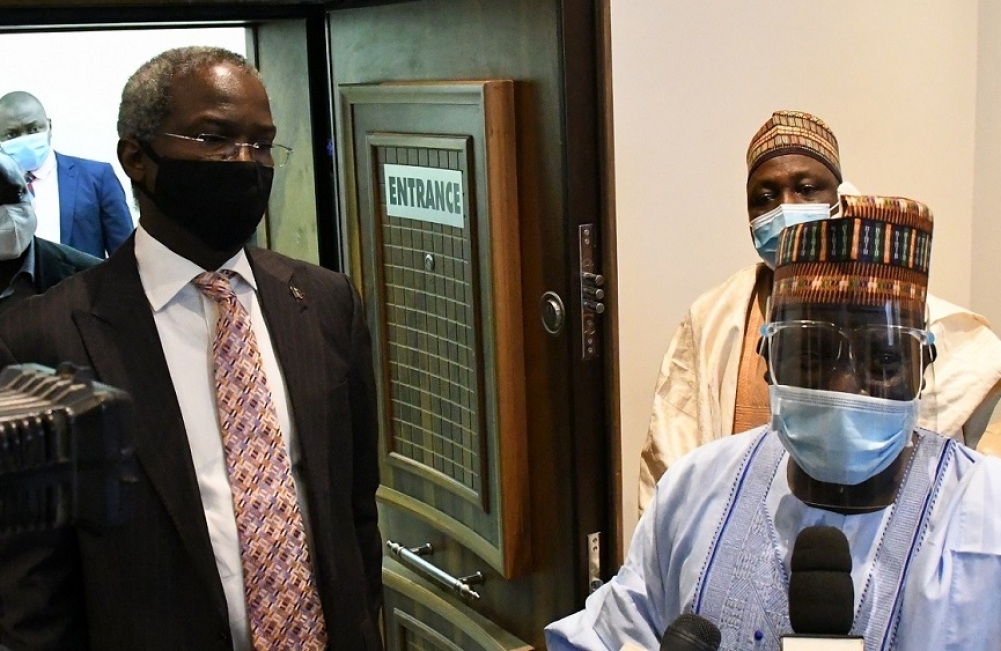
FG To Replace Collapsed Wase Bridge With Concrete Bridge
* Government will provide temporary relief to facilitate movement among affected communities, says Fashola
* Governor Lalong commends Minister for quick response to the situation
The Federal Government is to build a concrete bridge over the Wase Waterways in Wase Local Government Area of Plateau State as replacement for the recently collapsed Wase Bridge in the State, Minister of Works and Housing, Mr. Babatunde Fashola SAN, has disclosed.
Fashola, who spoke in Abuja on Monday when he met with the Plateau State Governor, Mr. Simon Lalong, said the Government would meanwhile provide a short term relief to facilitate movement among the communities disconnected as a result of the collapse.
The Minister, who said the temporary relief would be undertaken by the Federal Controller of Works in Plateau State in collaboration with the State Government and Chairman of Wase Local Government, added that the new concrete bridge would be a long term solution to the perennial problem which the bridge had suffered as a result of heavy rainfall.
Explaining that the design of the bridge would take his Ministry’s design team about eight weeks to complete, the Minister, however, added that the final implementation of the concrete bridge plan would depend on the availability of fund.
He commiserated with the Government and people of Plateau State over the collapse of the bridge, which was as a result of a heavy downpour, and commended the Governor for his quick response to the natural disaster pointing out that the Governor put a call to him as soon as the incident occurred which enabled him to schedule the meeting.
“Our intention is to do a design with a new concrete bridge across the waterways and that will take us about eight weeks going by the design team of the Ministry”, he said.
In his response, the Plateau State Governor, Mr. Simon Lalong, thanked the Minister for scheduling the meeting within a short notice and assembling the relevant departments with the view to finding short and long term solutions to the problem adding that he was motivated to call the attention of the Minister immediately due to the extent of damage to the Bridge.
The Governor, who was full of gratitude to the Minister for the outcome of the meeting, explained, “Because of the level of damage on the bridge and the importance of the bridge to the State, I quickly put a call to the Minister to which he responded by calling for this meeting. I thank him for the time line given in addressing the issue”.
FG Reiterates Commitment To Complete Ongoing Road Projects...
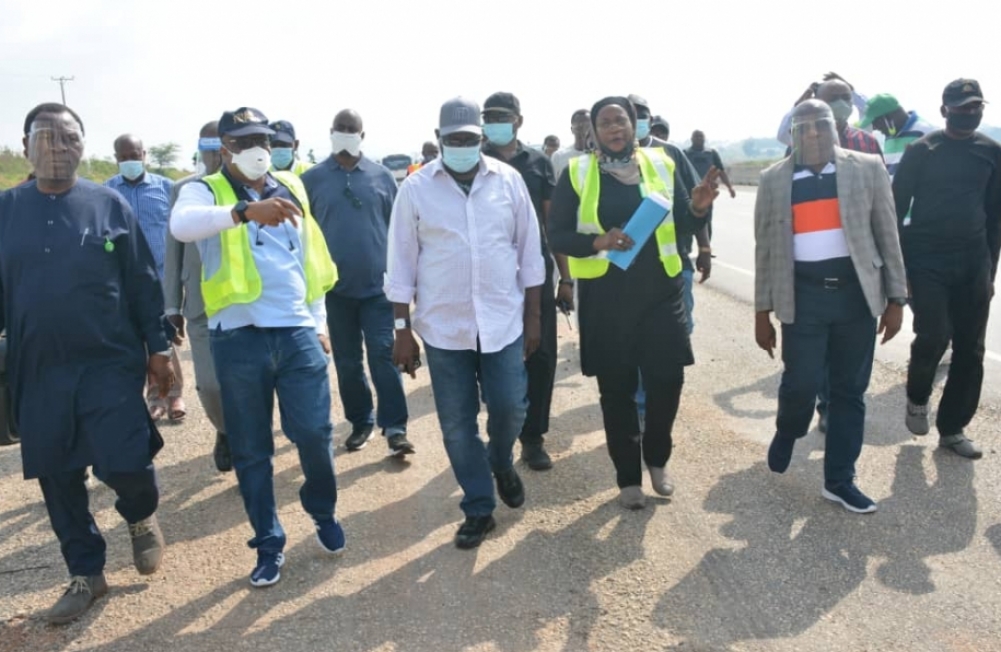
FG Reiterates Commitment To Complete Ongoing Road Projects
Minister of state Works and Housing, Engr. Abubakar D.Aliyu FNSE has reiterated the commitment of President Muhammadu Buhari to complete all ongoing roads projects across the country
The minister stated this over the weekend during his inspection tour of dualisation work of Abuja-Abaji-Lokoja Road Section 1: (International Airport Link Road junction-SHEDA Village junction.
The project being handled by Mesrs Dantata and Sawoe is over 96% completed
Engr Aliyu said, President Buhari had mandated his ministry to ensure delivery of all projects that are between 80% and 90% completion stage, hence his senior colleague minister Babatunde Fashola and himself are not leaving anything to chance in order to help Mr. President realise that dream.
On the project, he said: "The project will be delivered very soon as it has reached 96 percent completion. "
He explained that the purpose of the inspection tour of the Abuja-Abaji-Lokoja project was to have a first hand information and also interface with the contractor, project engineers and the technical officers of the project with a view to identifying grey areas and agree on the way forward that would ensure the timely delivery, which was supposed to be May 2020.
The Executive Director of Dantata and Sawoe, Engr. Nasir Dantata explained that there was an addition of Service lane to be provided within the Gwagwalada metropolis and final asphalt laying of shoulders which he promised the Minister would be delivered as soon as all necessary approval and requirements are met.
Works And Housing Minister, Fashola, Has Not Left Abuja Since March 22...
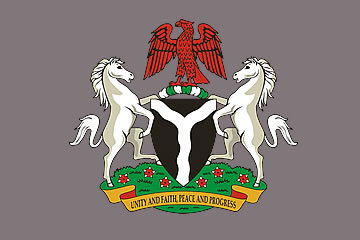
Works And Housing Minister, Fashola, Has Not Left Abuja Since March 22
The attention of the Office of the Honourable Minister of Works and Housing, Mr. Babatunde Fashola SAN, has been drawn to a letter signed by the Chairman/CEO of Executive Jets Services Limited, Dr Sam Iwuajoku concerning a flight it operated to Abuja last weekend.
For purposes of clarity and in order to set the records straight, the Hon. Minister of Works and Housing, Mr. Babatunde Fashola SAN, has not travelled out of Abuja since March 22, 2020, when he returned there after an inspection tour of the Enugu-Port Harcourt Expressway construction work and a visit to Lagos, before the lockdown.
The decision of the Hon. Minister not to travel was taken in strict compliance with the Federal Government’s ban on inter-state travels as part of efforts to control the COVID-19 pandemic.
It is therefore ridiculous for Dr Iwuajoku to attempt to link the Hon. Minister with any noncompliant flight.
Abba Kyari : Tribute To A Single-Minded Patriot...
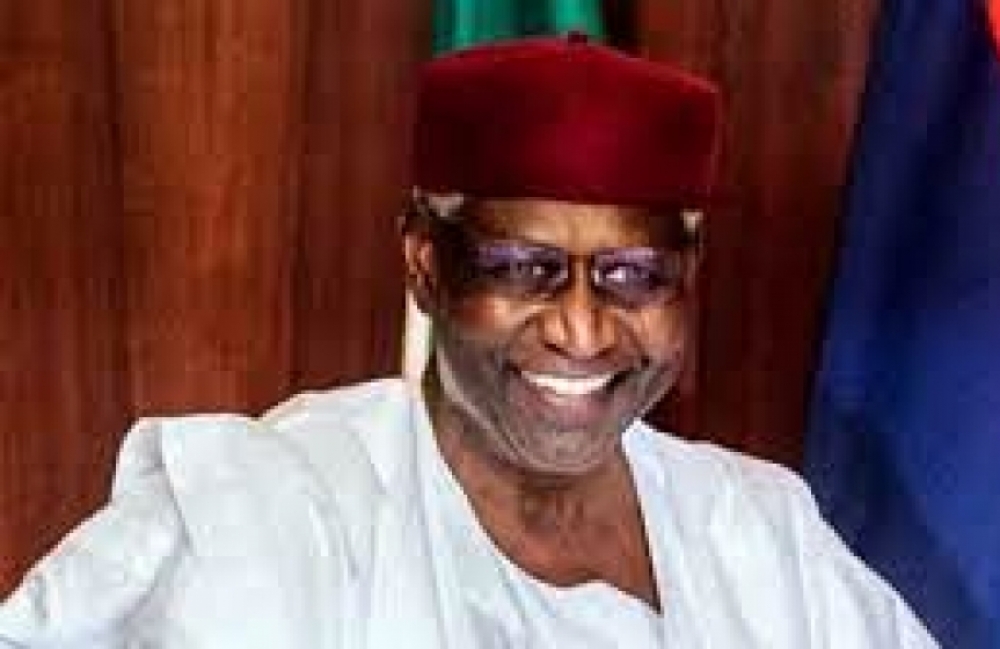
Abba Kyari : Tribute To A Single-Minded Patriot
As the inks flow in tributes to Abba Kyari by those who loved and despised him, let us not forget that Abba was much misunderstood and often maligned.
Wherever you stood then and stand now, let us not forget that Abba was a patriot .
He executed President Buhari’s vision with his own single mindedness. One of his favourite quotes was credited to Jeff Immelt to the effect that “The job looks easy when you are not the one doing it.” He seemed to take a lot of comfort from these words when his actions were misunderstood.
I bear testimony to his dedicated execution of the Presidential Infrastructure Development Fund Initiative (PIDF) which guaranteed funding to cash strapped projects like the Second Niger Bridge, the Abuja-Kano Highway, the Lagos-Ibadan Expressway, the Mambilla Hydro Project and the East –West Road at monthly meetings we held to review progress with Contractors.
Like all of us, Abba was flawed but he was not conceited. He was driven by conviction and never shied from an intellectual argument because his intellect was vast.
We disagreed but I never found Abba disagreeable.
Now that he has paid the supreme price in the service of the fatherland one good way we can honour Abba’s service and memory is to continue where he stopped.
Our most compelling assignment is to make the defeat of Covid-19 an urgent National Assignment to be completed in shortest possible time.
I think Abba would love that very much.
We must now undertake this assignment with a single mindedness similar to Abba’s execution of his own assignment.
This requires all of us , high and low , to observe existing guidelines like hand washing, sanitizing , wearing of face mask, social distancing and staying at home, in order to stop the community spread of the virus.
We must remember that the virus , on its own can only travel about 6 (six) feet and no more.
If it travels beyond that to our villages, cities, towns, wards, local governments and our homes, we carried it and enabled it to do so by heedlessly transporting it.
My deepest condolences go to Abba’s wife, children and family who gave us their Husband, Father, Brother, Uncle and Son , and to Mr President and all his immediate Staff and colleagues in the Villa .
Rest in Peace Chief, you served well.
Babatunde Raji Fashola, SAN
Honourable Minister of Works and Housing
Fashola Delivers 3 Internal Rehabilitated Roads Of 1.80km To University Of Ibadan...
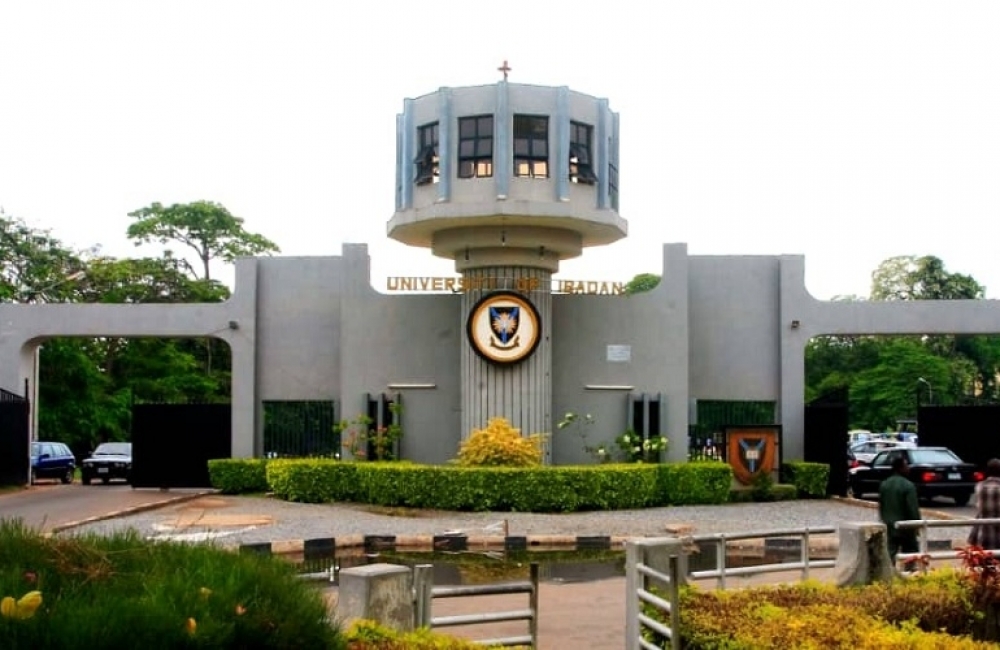
Fashola Delivers 3 Internal Rehabilitated Roads Of 1.80km To University Of Ibadan
The Honourable Minster of Works and Housing, Babatunde Raji Fashola, SAN has delivered three internal rehabilitated roads of 1.80 kilometers by the Federal Ministry of Works and Housing to the management of the University of Ibadan, Oyo State.
The 1.80KM roads which were rehabilitated have asphalt overlay, construction of culvert and line drains within the tertiary institution.The roads include: Gongola 230 meters, Sokoto Crescent 560 meters and Amina Way 1,010 meters respectively.
It could be recalled that the Federal Government under the 2017 and 2018 appropriation, procured 43 contracts respectively for the rehabilitation of internal roads in Federal Tertiary Institutions in the Six Geo-Political Zones nationwide and University of Ibadan is one of the beneficiaries in the first phase of the intervention.
According to the Honourable Minister of Works and Housing, Babatunde Raji Fashola, SAN who was represented by the Federal Controller of Works, Oyo State, Engineer Oladimeji Awopetu, during the official handing over ceremony, 18 out of the 43 internal roads project had been completed and were being handing over across the nation.
The Minister added that the intervention was to bridge the gap of the schools infrastructure needs in learning, adding that students were expressing renewed enthusiasm with regard to attending classes, because some defective roads had been restored to motorability.
“To date, 18 out of the 43 interventions have been completed and today we hand over this one in the University of Ibadan, Oyo State as a critical contribution to support education,”Fashola said.
Earlier in his opening remarks, the Vice Chancellor of the University of Ibadan, Prof. Abel Idowu Olayinka appreciated President Mohammadu Buhari and the Minister of Works & Housing, Babatunde Raji Fashola,SAN for selecting the institution as part of the beneficiaries amongst many tertiary institutions in Nigeria.
“For us to have been part of this intervention, we are very grateful, although, we have been doing some palliative repairs in the past but this time around, the Federal Government had surprised us by coming in a big way to fix these roads,”Prof. Olayinka said.
The VC revealed that more internal roads of the institution were still yarning for urgent attention. He pleaded with the Federal Government to intervene in those roads as soon as the resources were available.
The Director of Works, University of Ibadan, Engr. Adetolu Olufemi said the roads had been a major challenge before the rehabilitation. He thanked the Honourable Minister for the project most especially at this critical period where government resources were dwindling.
Also, a student from the Department of European Studies, Adeyemi Ayomikun said that the intervention was a great relief, adding that there was reduced stress for students moving from the hostels to lecture rooms.
Among the dignitaries present at the handing over ceremony were the Deputy Vice Chancellor Administration, Prof. Kayode Olabode Adebowale, DVC Academics, Prof. Adebola Babatunde Ekanola, DVC Research Innovation & Strategies Partnership, Prof Olayinka Adeyemo, the University Bursar, Dr. Michael Akinade Alatise, Directorate of Public Communications, Mr. Olatunji Oladejo amongst others.
Construction Of Port Harcourt– Enugu Express Highway Is On Course-Fashola...
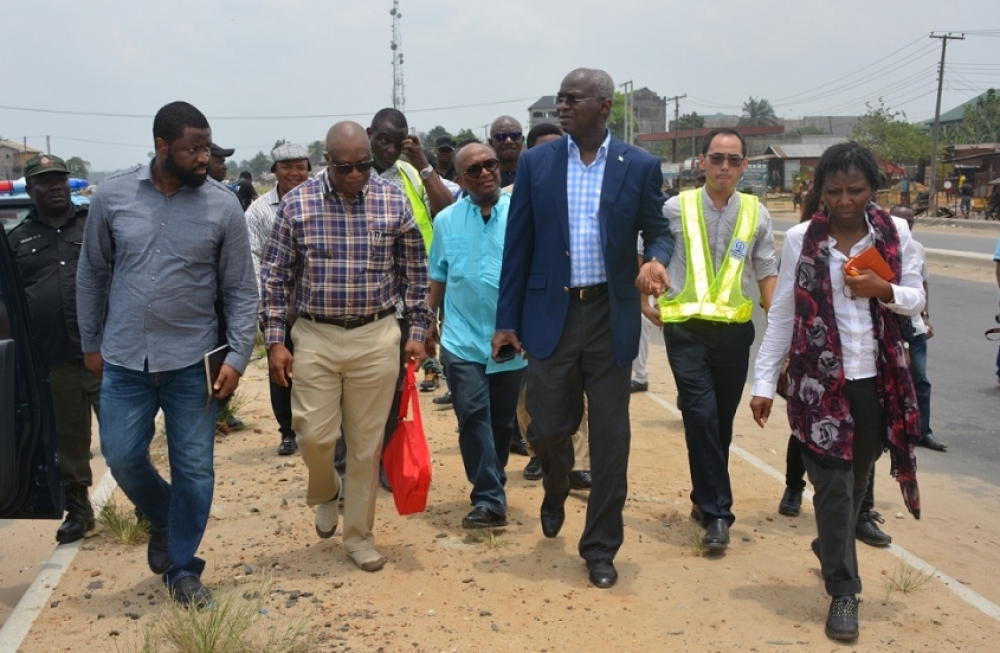
Construction Of Port Harcourt– Enugu Express Highway Is On Course-Fashola
The Honourable of Minister of Works and Housing, Babatunde Raji Fashola SAN, said the on-going expansion and upgrading work on the Port Harcourt– Enugu and the Aba – Port Harcourt Expressway was on course.
He added that the nine kilometers from Eleme junction to the Imo River and four kilometers of the road to the railway crossing in Aba towards Port Harcourt were sections of the road being expanded and upgraded from the 4 (four) existing lanes to 8 (eight) lanes so as to accommodate current and future traffic volumes and ease some level of intolerable discomfort especially during the rainy season.
Fashola disclosed this during an inspection tour of the highway project in Port- Harcourt, the Rivers State capital.
According to the minister, the road would link the five States in the South -East Geopolitical Zone of the country. The highway has a total length of 41.4km starting from Aba Rail Crossing Bridge within Aba township in Abia state and will finally terminate at Eleme junction Flyover in Port Harcourt, Rivers State.
Fashola applauded the initiative of the construction company, China Civil Engineering Construction Corporation Nigeria Limited as it planned to focus on the first 4 (four) lanes, finish that and put them in to use before reconstruction of the other 4 (four) lanes to reduce the long time spent in traffic by commuters and the community.
“If people have two uninterrupted lanes, traffic may be slow but it will move, and therefore we can concentrate on finishing the remaining lanes. When we finish both, then we can have the full compliment of the 8 lane highway.” he said.
Fashola said, “Our plan is to make this year better than last year and ultimately by next year, there will be no rainy season challenges because, we should have come out fully from this,”he added.
The minister also disclosed that similar construction work had commenced at the Enugu and Okigwe axis of the highway project by different contractors to provide seamless traveling experience.
Fashola directed that all vehicles parked at construction sites of highway projects should be impounded, adding that Federal government roads were not for parking lot. “Our highways are not parking lots, people who want to do business must create their own parking lots as well.’’
He urged local and state governments to mobilize their people to be alive to their civic responsibilities and cooperation, pointing out that community and personal hygiene were crucial in this crisis of Coronavirus (Covid 19).
"We must not waste the crisis that Covid-19 represents. It is an opportunity to improve on personal and community hygiene and sanitation such as putting an end to open urination and defecation,” Fashola advised.
The Federal Controller of Works Rivers State, Engr. Johnson Fadire who conducted the minister, his team and journalists round the on-going road construction project said the minister’s inspection was timely and that the Federal Ministry of Works and Housing would do the needful to make sure the road was completed and delivered at the right time.
Engr. Fadire also commended the traditional rulers who prevailed on their subjects whose properties were demolished for the construction of the highway for agreeing to accept an initial payment of fifty percent for compensation on their demolished properties.
Speaking earlier, the project manager of CCECC Nigeria Limited, Mr. Zou Xiaomei one of the contractors handling section IV of the project in Rivers State said although there were initial challenges on the project but with the support of the Federal Ministry of Works and Housing most of the challenges were sorted out.
Quality Infrastructure, Impacting Quality Education -Fashola...
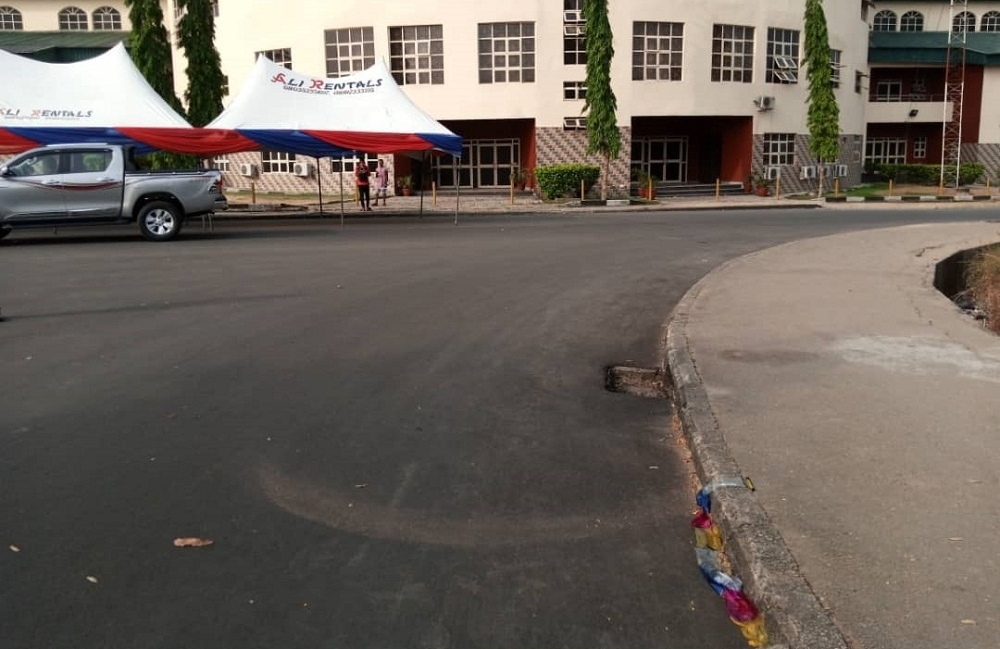
Quality Infrastructure, Impacting Quality Education -Fashola
The Minister of Works and Housing, Babatunde Raji Fashola,SAN said that the quality of infrastructural development within a country could un-debatably impact quality education and the learning environment.
He made the remark at the handing over ceremony of a completed internal road intervention project by the Federal Ministry of Works and Housing at the University of Calabar, Cross River state.
Fashola who was represented by the Federal Controller of Works Cross River State, Engr. Bassey Nsentip observed that the road completed had enhanced students mobility and reduced stress in the learning environment.
He further stated that although the road intervention project was a civil works project, the Federal Government intends to invest in education by improving the ambience and environment of tertiary institutions to enhance academic activities.
The Minister also disclosed that the Federal Government is presently working on the rehabilitation of 43 internal roads in federal tertiary institutions across the six geopolitical zones of the country out of which 18 had been completed and being handed over.
He said the 1.17km road handed over to the University of Calabar was among such roads, urging the school authority and students to ensure the asset was used and maintained properly.
Speaking earlier the Vice Chancellor University of Calabar,Prof. Zana Akpagu who was full of delight for the laudable initiative disclosed that prior to its rehabilitation, the road was in a deplorable state. He added that before the rehabilitation the road was inaccessible for students to go through especially during the rainy season.
Prof. Akpagu said the road now enables easy access to the hostels, classrooms, the medical department and the chapel.
He thanked the President and the Minister of Works and Housing for the road while believing that the government would do more roads and infrastructural interventions in future to help the university.
Also in a chat with the media, the Director of Finance and Supplies Cross River State Ministry of Works,Mr.Ebere Ignatius thanked the Federal Government for the support and pledged more collaborations with the federal government.
PHOTO NEWS
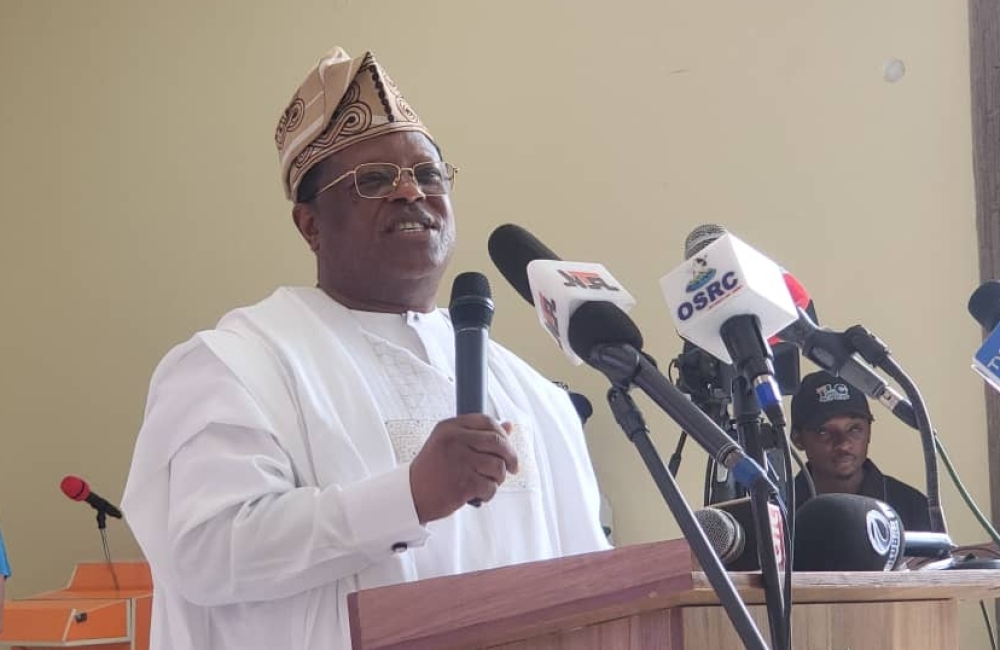
THE HON. MINISTER OF WORKS, H.E. SEN. (ENGR.) NWEZE DAVID UMAHI, CON, FNSE, FNATE ENGAGES STAKEHOLDERS IN ONDO STATE ON THE 63-KILOMETRE ALIGNMENT OF THE LAGOS - CALABAR COASTAL HIGHWAY PASSING THROUGH THE STATE, THURSDAY, 31ST OCTOBER, 2024 IN AKURE.
1
PHOTO NEWS
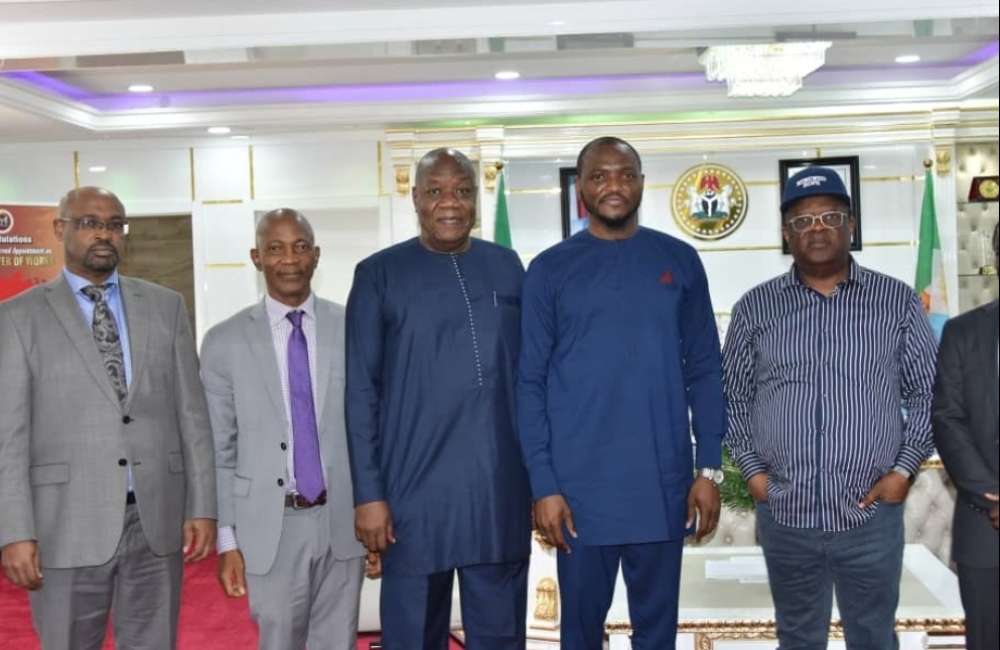
HON. MINISTER OF WORKS, HIS EXCELLENCY SEN. ENGR NWEZE DAVID UMAHI CON (RIGHT) WITH THE DIRECTOR, INFRASTRUCTURE AND URBAN DEVELOPMENT, MIKE SALAWOU HELD AT THE OFFICE OF THE HONOURABLE MINISTER FEDERAL MINISTRY OF WORKS, THIS 5TH MARCH 2024.
Hon. Minister of Works, His Excellency Sen. Engr Nweze David Umahi CON (Right) with the Director, Infrastructure and Urban Development, Mike Salawou held at the office of the Honourable Minister Federal Ministry of Works, this 5th March 2024.

